All major ETL vendors & tools covered
ETL tools automate and model the flows of (big) data from various sources with the goal of delivering clean management information. Among other things, an ETL tool handles the automated extraction, transformation, and loading of data into a data warehouse, data lake, or other type of database. Despite some acquisitions, the choice of ETL software is still wide. Below is a comprehensive list of the major vendors. Of course, you want to tailor the software as closely as possible to the users’ wants and needs and the IT standards that apply. We did extensive market research on all the major ETL tooling products available on the market and are now disclosing all the (confidential) details. You can read all about it in our 100% independent ETL & Data Integration Guide 2025.
The list of ETL tools
Below you will find the names of all important ETL tools, click on an ETL tool for more information. Or order and consult our ETL & Data Integration Guide™ 2025 and quickly make an objective comparison between all these parties. The list is compiled in alphabetical order. The scores of the various data integration solutions can be found in our vendor-neutral research. Passionned Group is 100% independent, so we are in no way affiliated with the ETL software suppliers.
1. Actian
 The most well-known products in the area of ETL & Data Integration of the company Actian are Actian Avalanche, Actian Dataconnect, Actian Dataflow, Actian Data Integration, and Actian Nosql Object Database. We analyzed and evaluated these ETL & Data Integration products in depth and meticulously. The ETL tools from Actian can be characterized by good support on the following topics:
The most well-known products in the area of ETL & Data Integration of the company Actian are Actian Avalanche, Actian Dataconnect, Actian Dataflow, Actian Data Integration, and Actian Nosql Object Database. We analyzed and evaluated these ETL & Data Integration products in depth and meticulously. The ETL tools from Actian can be characterized by good support on the following topics:
- data integration
- nosql
- windows
- data warehouse
- data management
- hadoop
- ETL
- data quality
- data sources
- API
 Figure 1: Actian Avalanche
Figure 1: Actian Avalanche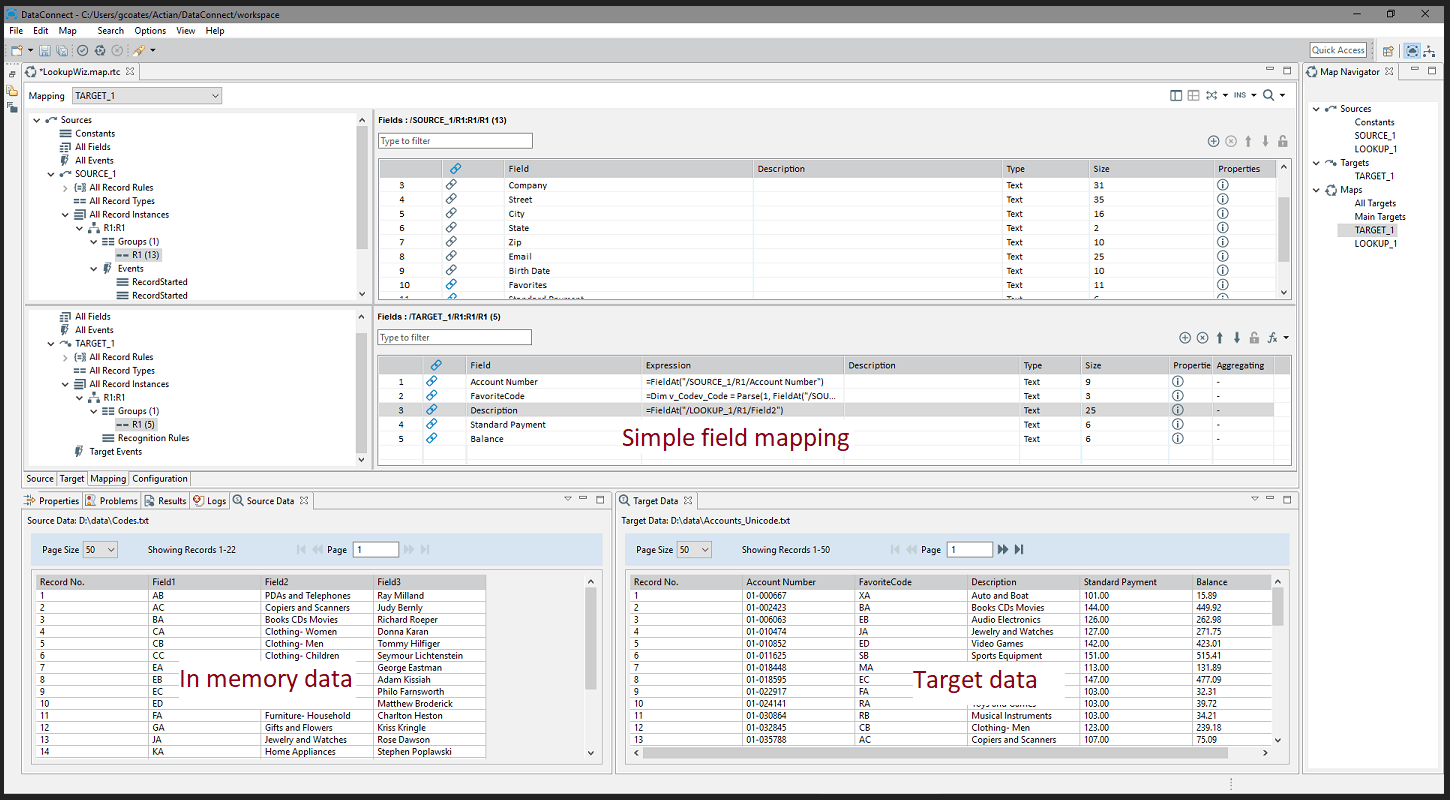 Figure 2: Actian Dataconnect
Figure 2: Actian Dataconnect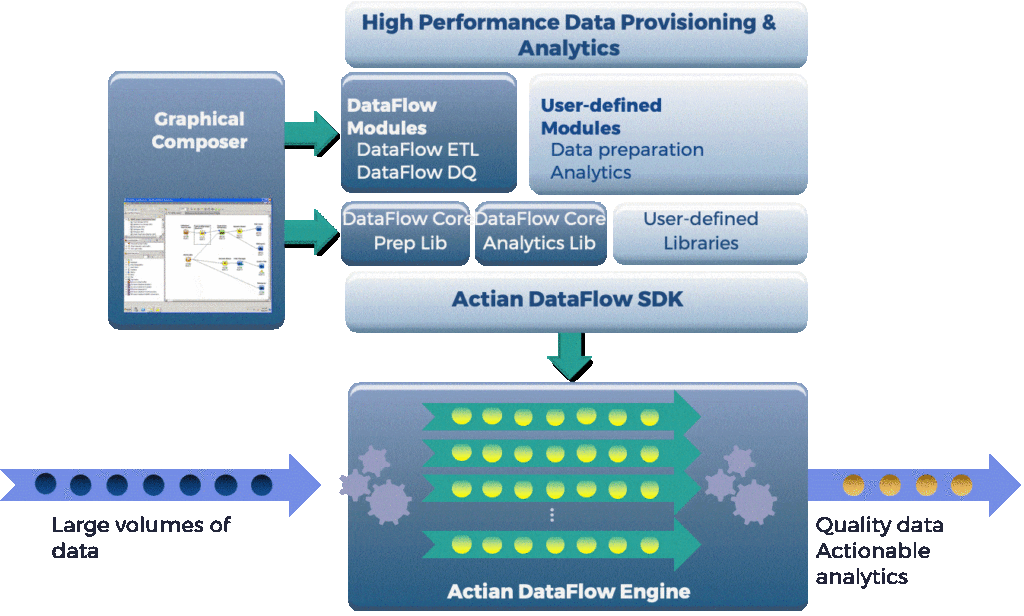 Figure 3: Actian Dataflow
Figure 3: Actian Dataflow2. Adeptia
 The most well-known products in the area of ETL & Data Integration of the company Adeptia are Adeptia Connect, Adeptia Suite, Adeptia Integration, and Adeptia Server. We analyzed and evaluated these ETL & Data Integration products in depth and meticulously. The ETL tools from Adeptia can be characterized by good support on the following topics:
The most well-known products in the area of ETL & Data Integration of the company Adeptia are Adeptia Connect, Adeptia Suite, Adeptia Integration, and Adeptia Server. We analyzed and evaluated these ETL & Data Integration products in depth and meticulously. The ETL tools from Adeptia can be characterized by good support on the following topics:
- data integration
- ETL
- API
- data mapping
- windows
- rest API
- GIT
- BLOB
- XML
- security
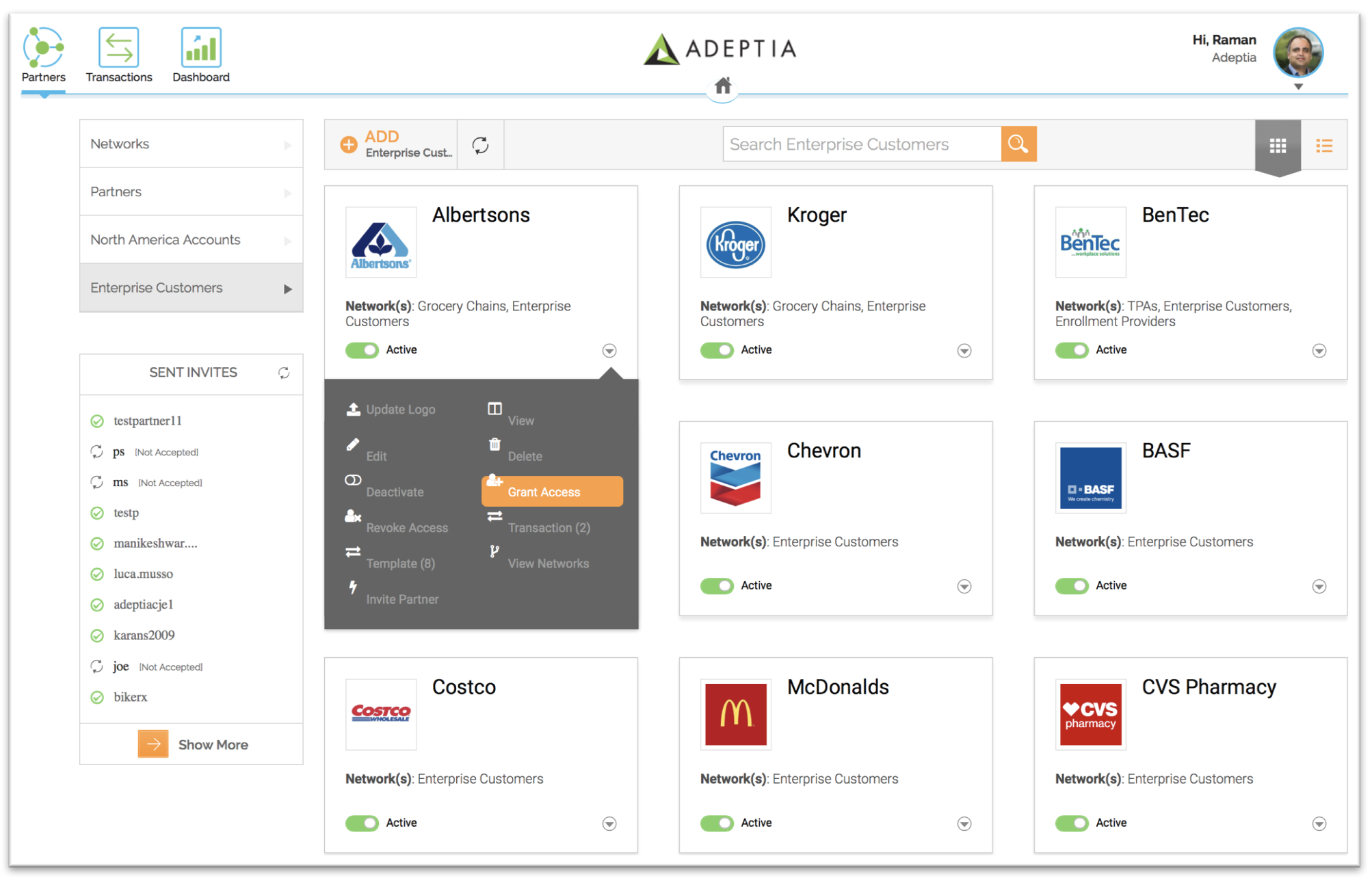 Figure 4: Adeptia Connect
Figure 4: Adeptia Connect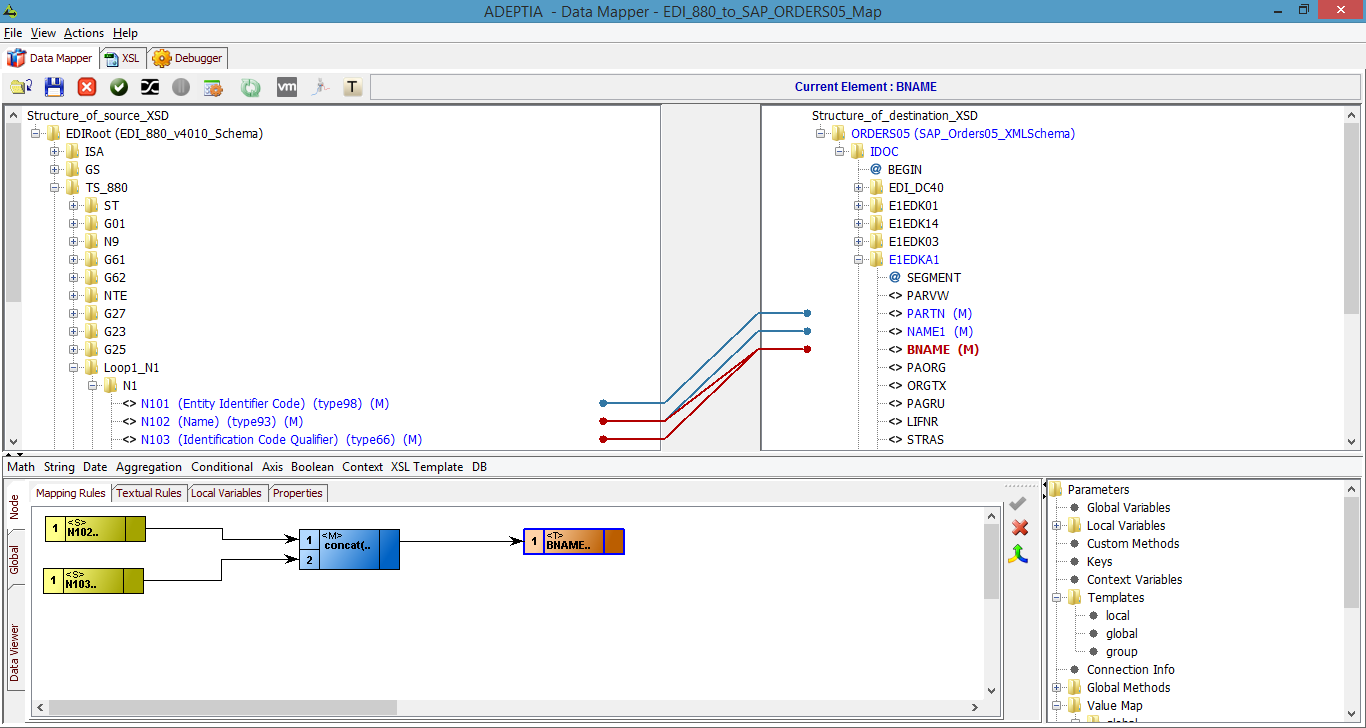 Figure 5: Adeptia Suite
Figure 5: Adeptia Suite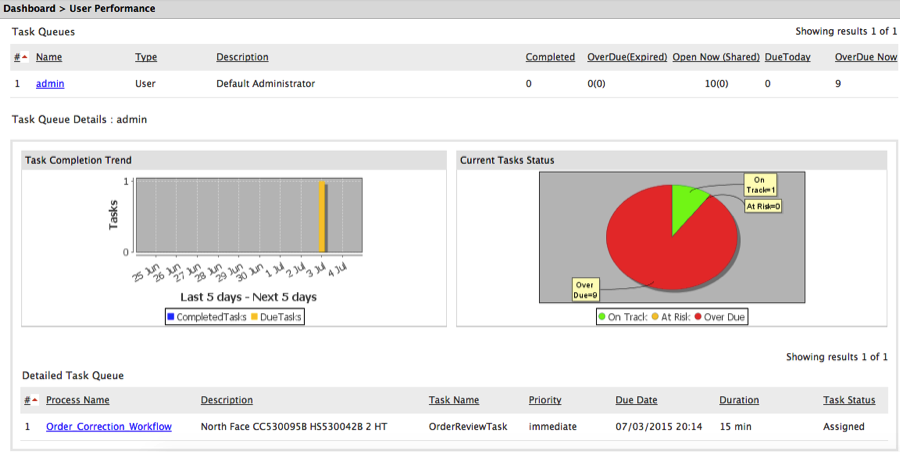 Figure 6: Adeptia Integration
Figure 6: Adeptia Integration3. Astera
 Astera is widely known for its products Astera Centerprise, Astera DW Builder, Astera Data Stack, Astera API Management, and Astera ReportMiner. The company is 100% specialized in ETL & Data Integration. Take a look at the images below. The ETL tools from Astera are strong in the following areas, among others:
Astera is widely known for its products Astera Centerprise, Astera DW Builder, Astera Data Stack, Astera API Management, and Astera ReportMiner. The company is 100% specialized in ETL & Data Integration. Take a look at the images below. The ETL tools from Astera are strong in the following areas, among others:
- data integration
- API
- data management
- data warehouse
- data extraction
- ETL
- data pipelines
- data sources
- data quality
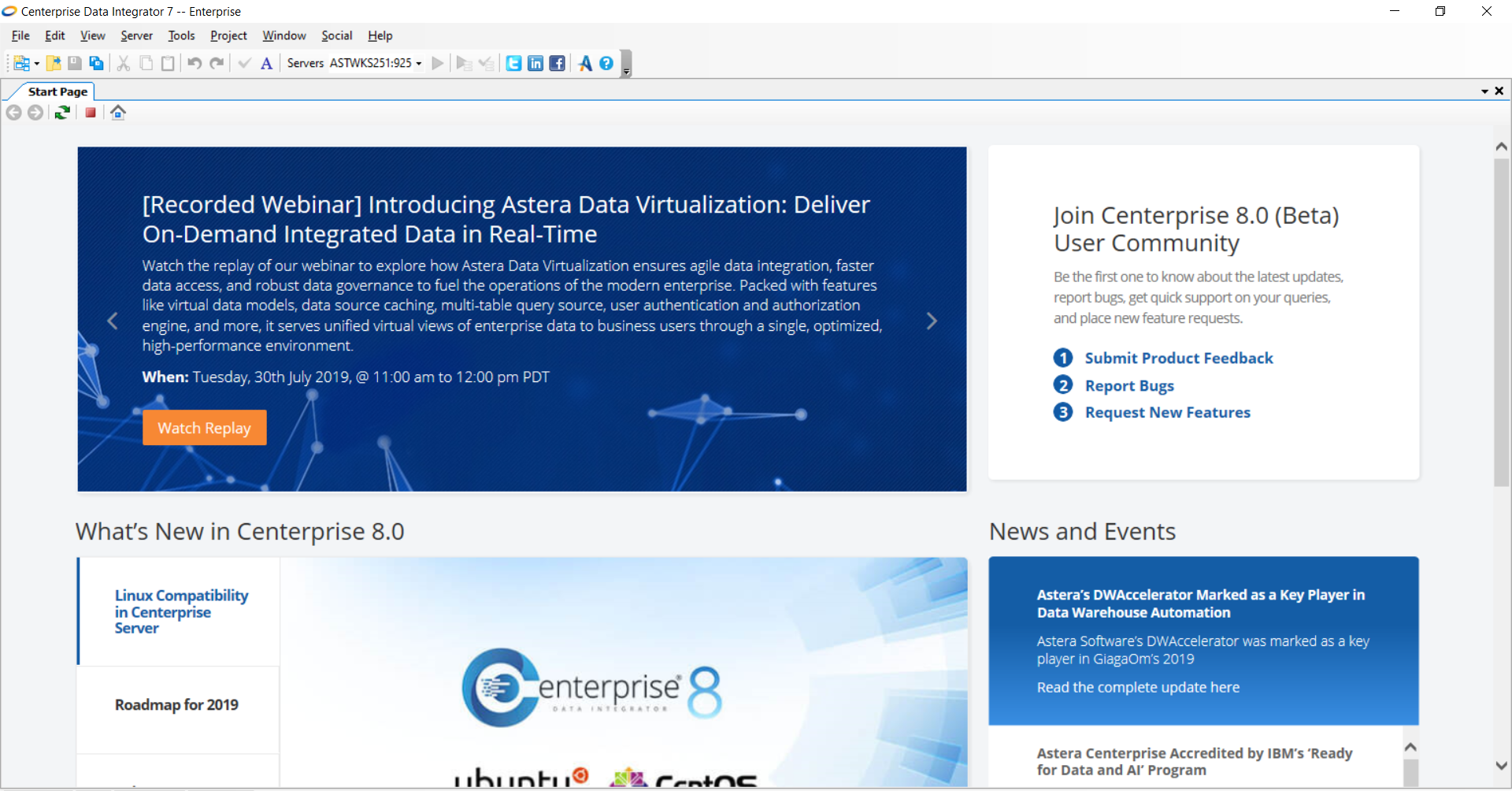 Figure 7: Astera Centerprise
Figure 7: Astera Centerprise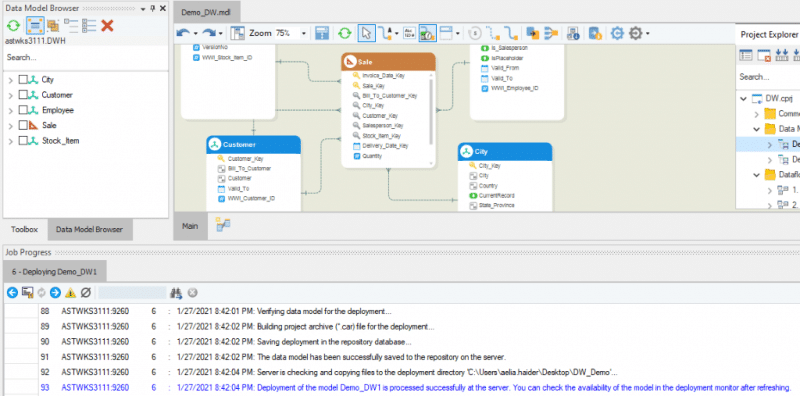 Figure 8: Astera DW Builder
Figure 8: Astera DW Builder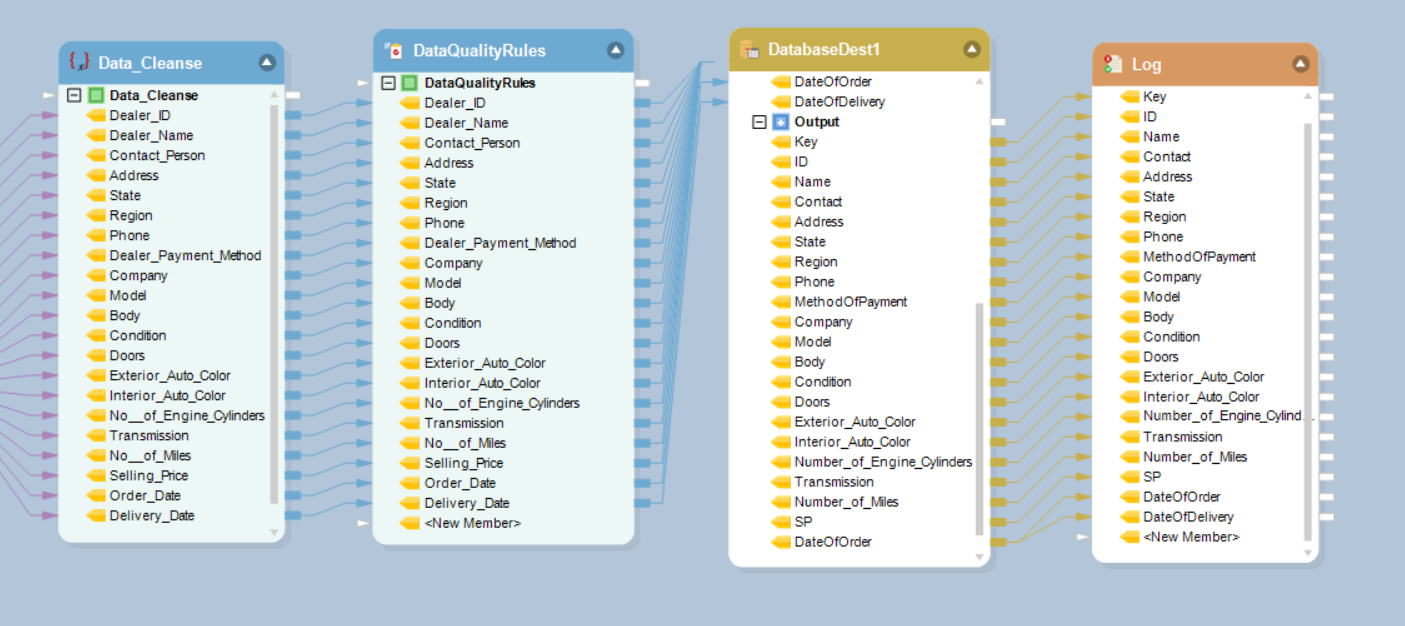 Figure 9: Astera Data Stack
Figure 9: Astera Data Stack4. CloverDX
 CloverDX is widely known for its products CloverDX Server, CloverDX Designer, CloverDX Data Integration, CloverDX Data Management, and CloverDX Data Quality. The company is 100% specialized in ETL & Data Integration. Take a look at the images below. The ETL tools from CloverDX are strong in the following areas, among others:
CloverDX is widely known for its products CloverDX Server, CloverDX Designer, CloverDX Data Integration, CloverDX Data Management, and CloverDX Data Quality. The company is 100% specialized in ETL & Data Integration. Take a look at the images below. The ETL tools from CloverDX are strong in the following areas, among others:
- data quality
- data management
- data integration platform
- ETL
- data pipelines
- API
- AWS
- JDBC
- JAR
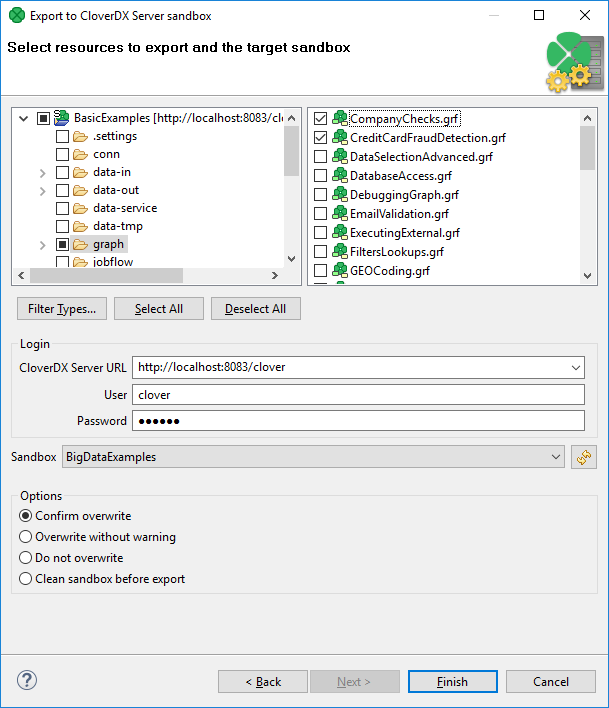 Figure 10: CloverDX Server
Figure 10: CloverDX Server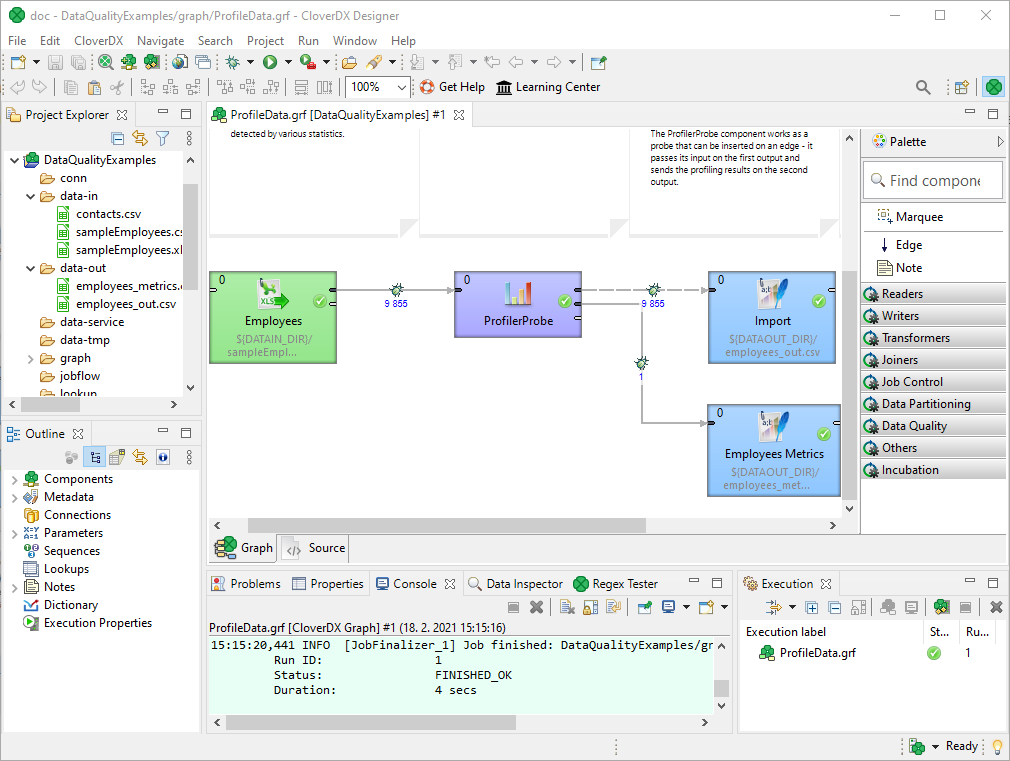 Figure 11: CloverDX Designer
Figure 11: CloverDX Designer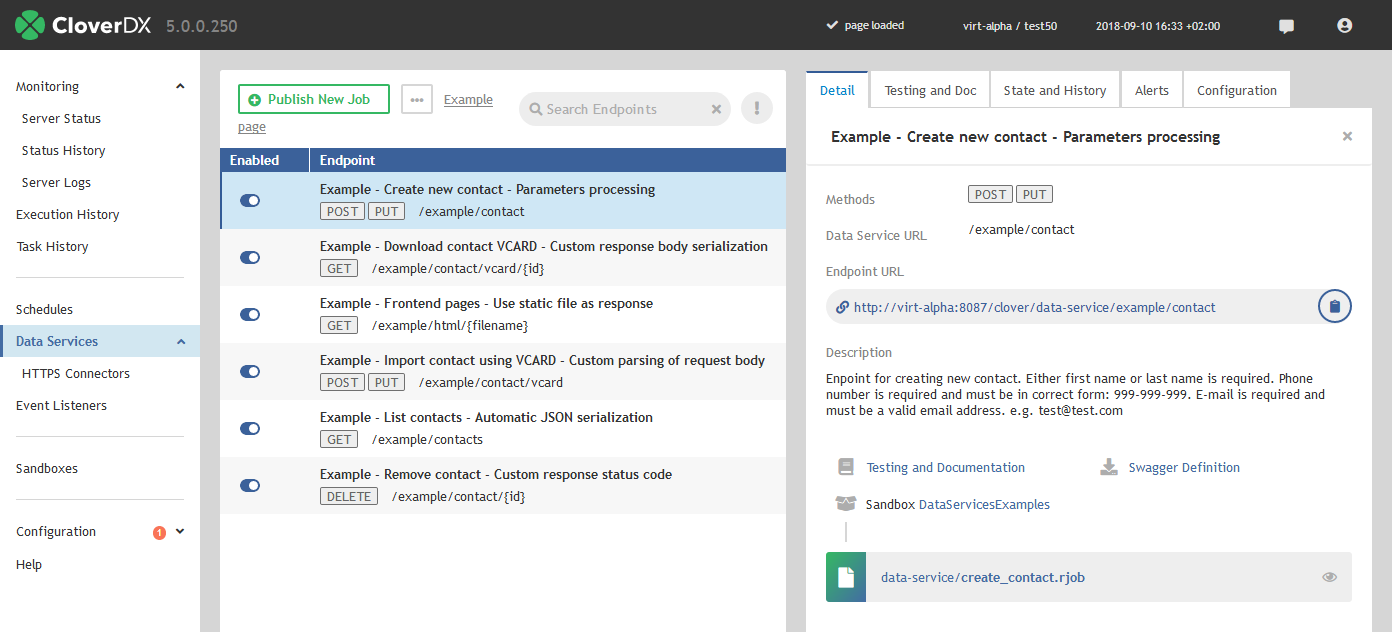 Figure 12: CloverDX Data Integration
Figure 12: CloverDX Data Integration5. Elixir Tech
 As far as we have been able to ascertain, Elixir Tech currently has only one primary product: Elixir Repertoire. Take a look at the screen shots below. The ETL tools from Elixir Tech are strong in the following areas, among others:
As far as we have been able to ascertain, Elixir Tech currently has only one primary product: Elixir Repertoire. Take a look at the screen shots below. The ETL tools from Elixir Tech are strong in the following areas, among others:
- ETL
- data integration
- XML
- API
- windows
- JDBC
- data sources
- CSV
- linux
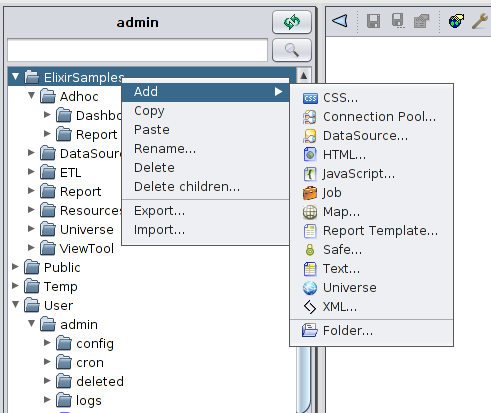 Figure 13: Elixir Repertoire
Figure 13: Elixir Repertoire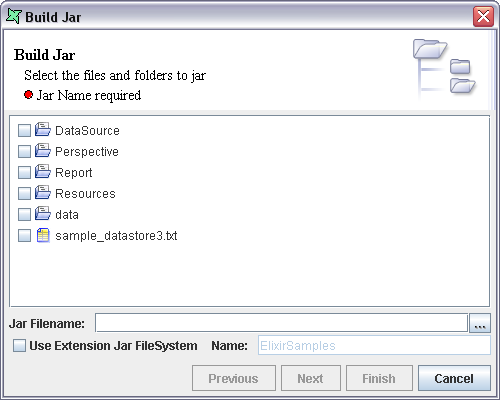 Figure 14: Elixir Repertoire
Figure 14: Elixir Repertoire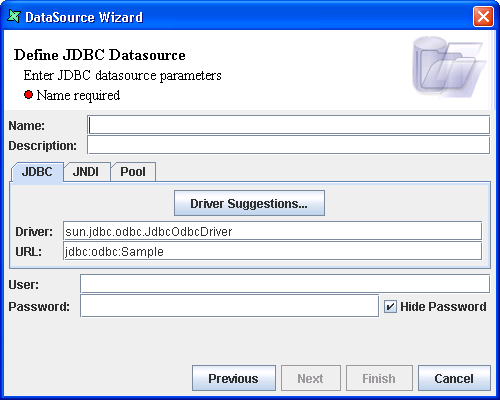 Figure 15: Elixir Repertoire
Figure 15: Elixir Repertoire6. Fivetran
As far as we have been able to ascertain, Fivetran currently has only one primary product: Fivetran System. Take a look at the screen shots below. The ETL tools from Fivetran are strong in the following areas, among others:
- data integration
- metadata
- data sources
- ETL
- API
- data pipelines
- salesforce
- file replication
- enterprise data catalog
- data catalog
7. Hitachi Vantara ETL & Data Integration
 Hitachi Vantara is widely known for its products Pentaho Data Integration, Lumada Data Catalog, Lumada Edge Intelligence, Lumada Data Optimizer, and Lumada Data Integration. Take a look at the images below. The ETL tools from Hitachi Vantara are strong in the following areas, among others:
Hitachi Vantara is widely known for its products Pentaho Data Integration, Lumada Data Catalog, Lumada Edge Intelligence, Lumada Data Optimizer, and Lumada Data Integration. Take a look at the images below. The ETL tools from Hitachi Vantara are strong in the following areas, among others:
- data integration
- data catalog
- dataops
- data management
- hadoop
- big data
- metadata
- ETL
- AWS
- data pipelines
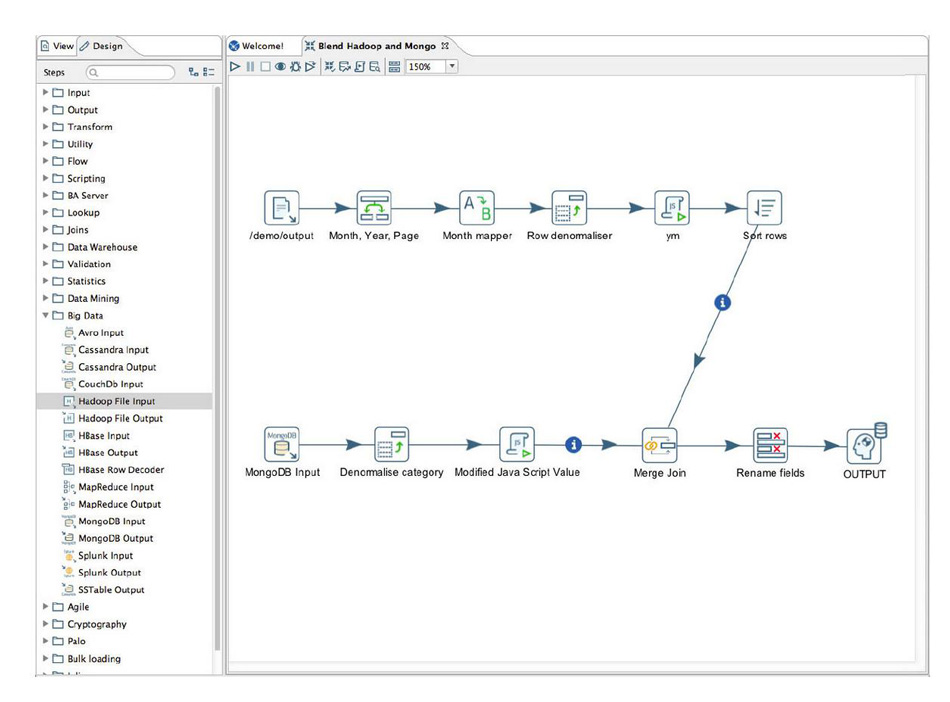 Figure 16: Pentaho Data Integration
Figure 16: Pentaho Data Integration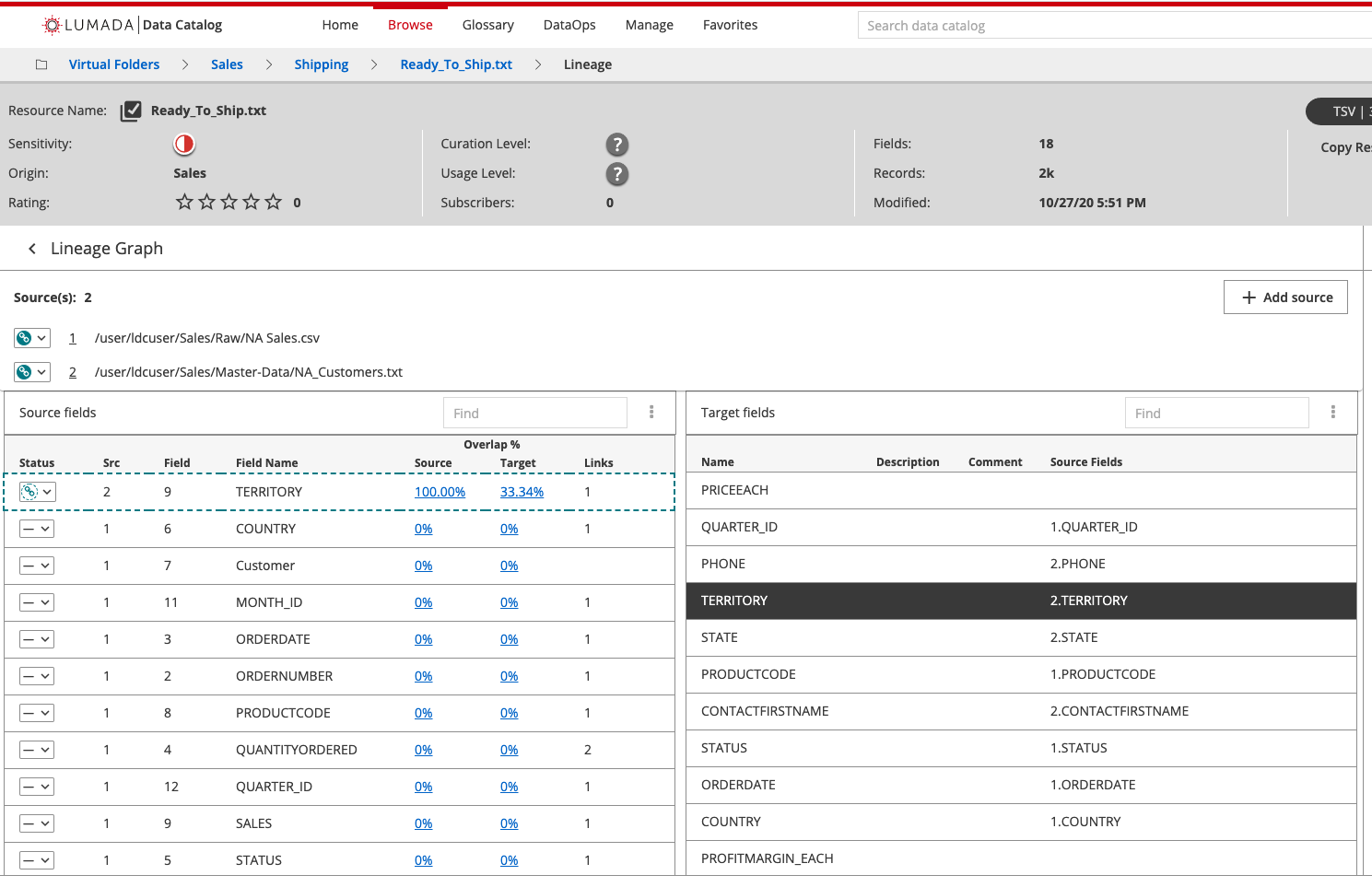 Figure 17: Lumada Data Catalog
Figure 17: Lumada Data Catalog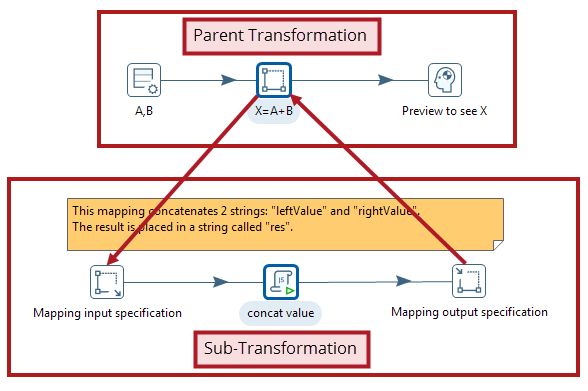 Figure 18: Lumada Edge Intelligence
Figure 18: Lumada Edge Intelligence8. IBM ETL & Data Integration
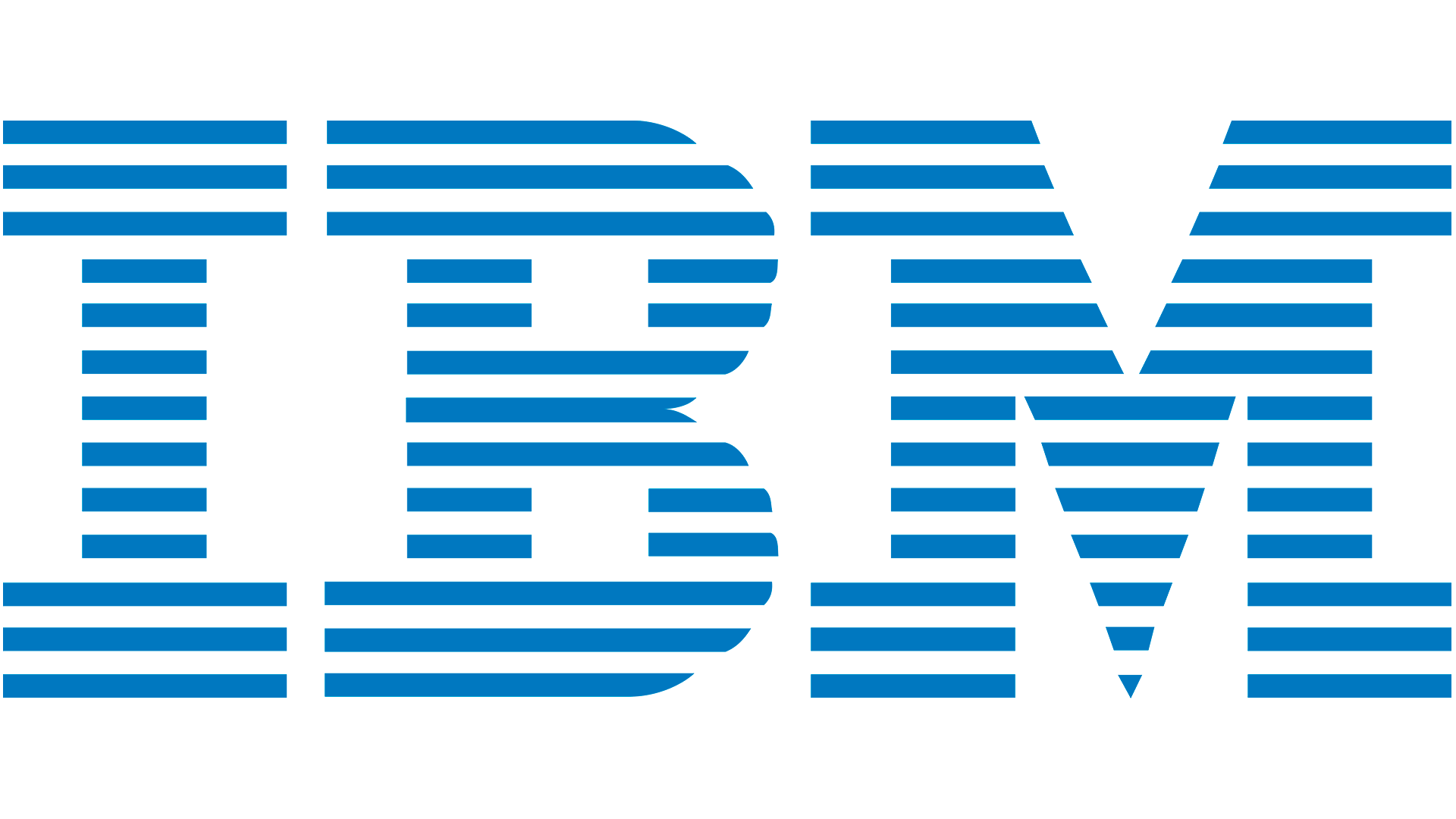 The ETL tools from the ETL & Data Integration vendor IBM focus on the support of the following functionalities:
The ETL tools from the ETL & Data Integration vendor IBM focus on the support of the following functionalities:
- data quality
- data replication
- data integration
- data management
- master data management
- z/os
- CDC
- ETL
- metadata
IBM serves the market with the following products, among others: Tivoli, IBM Infosphere Information Server, Infosphere Information Analyzer, and IBM Infosphere Datastage (see the images below). We took a closer look at them.
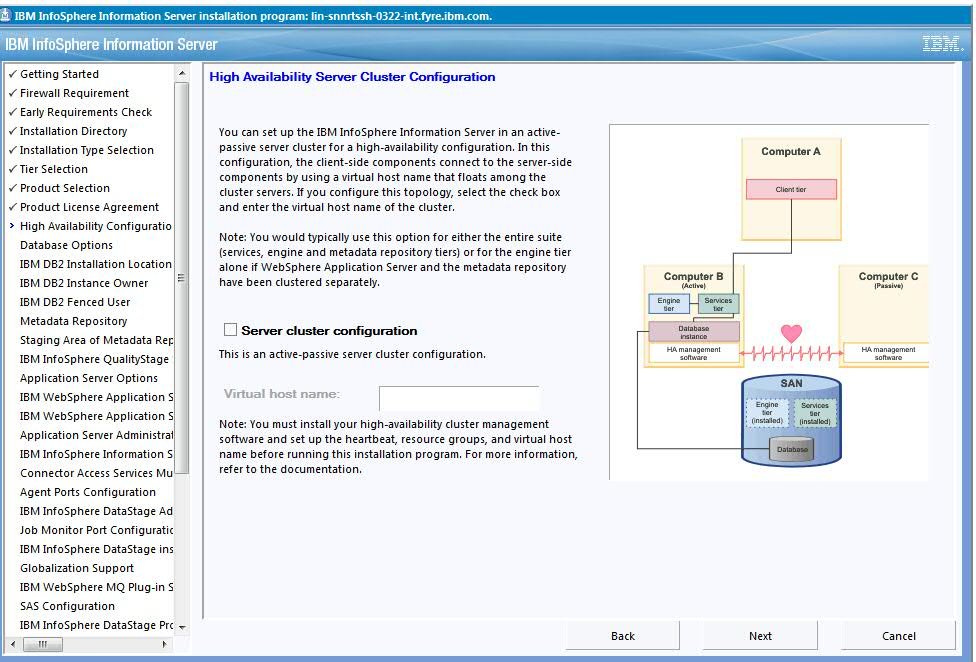 Figure 20: IBM Infosphere Information Server
Figure 20: IBM Infosphere Information Server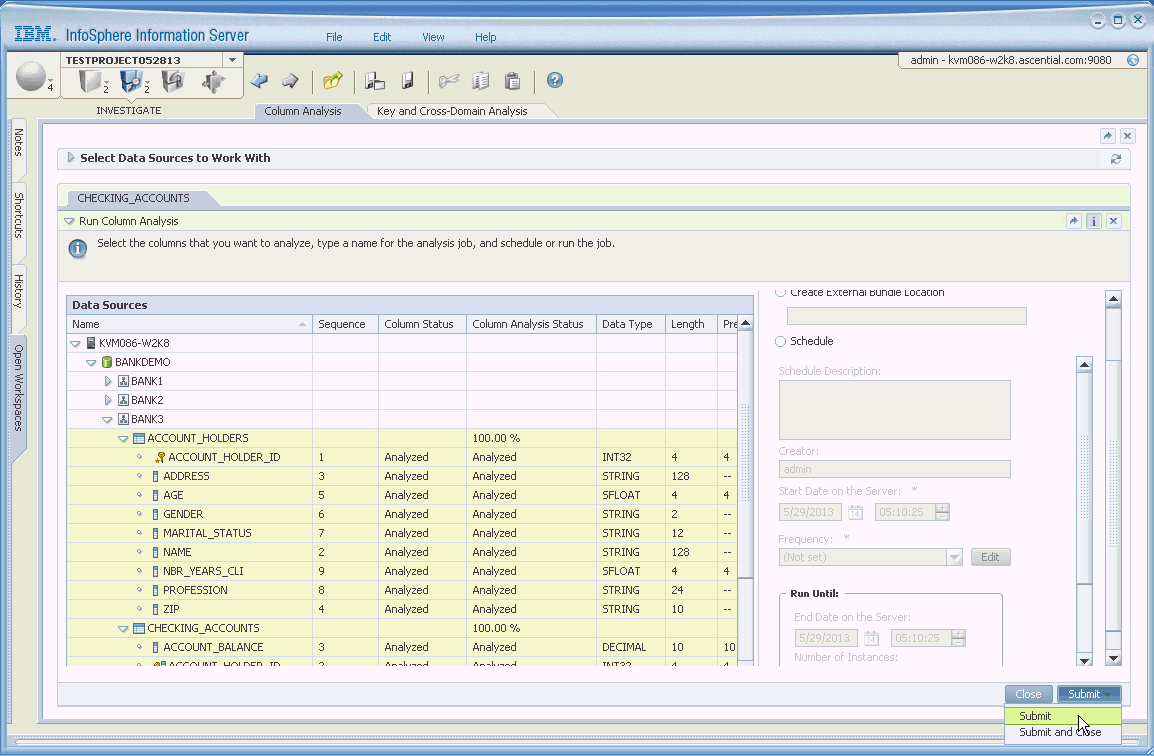 Figure 21: Infosphere Information Analyzer
Figure 21: Infosphere Information Analyzer9. Informatica
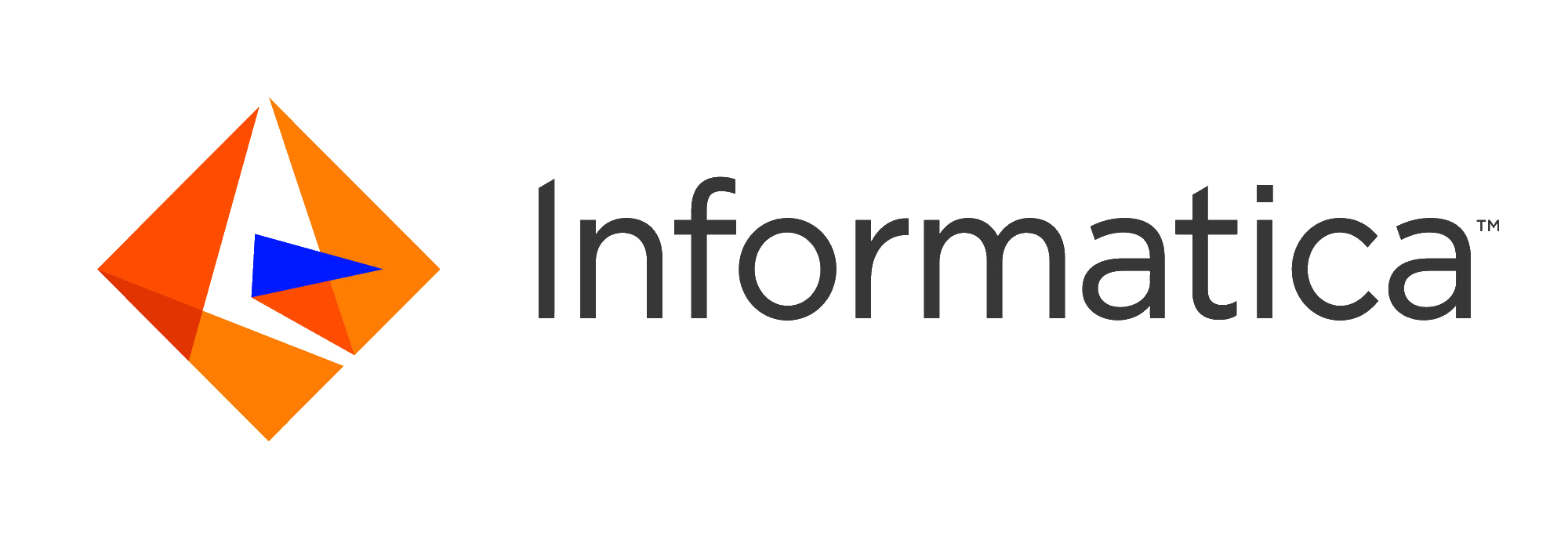 The most well-known products in the area of ETL & Data Integration of the company Informatica are Powerexchange, Informatica PowerCenter, Informatica Intelligent Cloud Services, Informatica Big Data, and Informatica Data Quality. We analyzed and evaluated these ETL & Data Integration products in depth and meticulously. The ETL tools from Informatica can be characterized by good support on the following topics:
The most well-known products in the area of ETL & Data Integration of the company Informatica are Powerexchange, Informatica PowerCenter, Informatica Intelligent Cloud Services, Informatica Big Data, and Informatica Data Quality. We analyzed and evaluated these ETL & Data Integration products in depth and meticulously. The ETL tools from Informatica can be characterized by good support on the following topics:
- data integration
- data quality
- data management
- metadata
- cloud data integration
- big data management
- data replication
- data profiling
- data virtualization
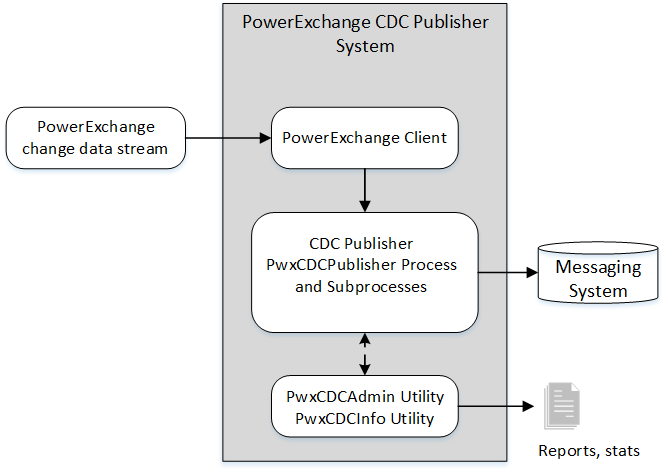 Figure 22: Powerexchange
Figure 22: Powerexchange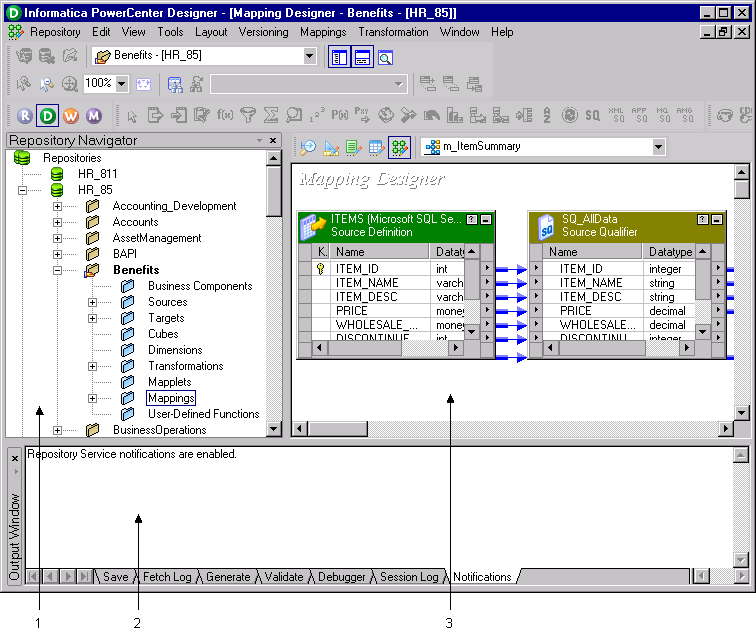 Figure 23: Informatica PowerCenter
Figure 23: Informatica PowerCenter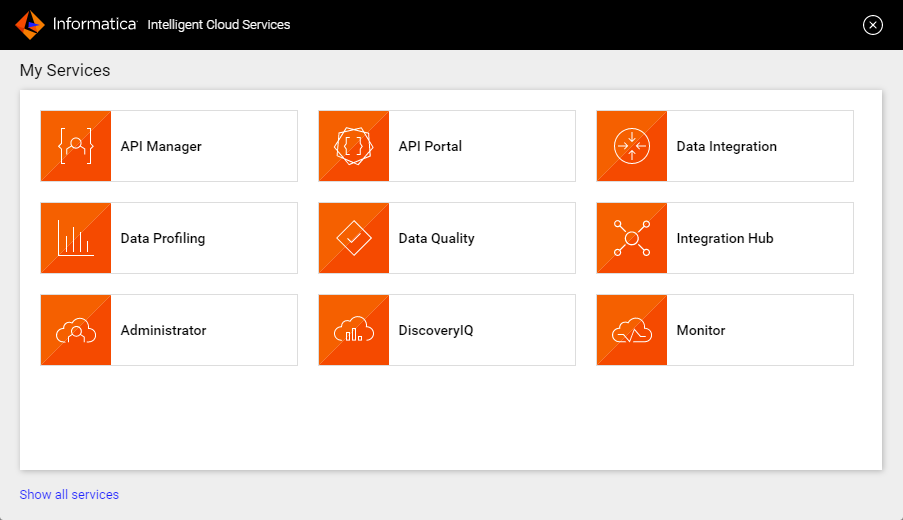 Figure 24: Informatica Intelligent Cloud Services
Figure 24: Informatica Intelligent Cloud Services10. Integrate.io (Xplenty)
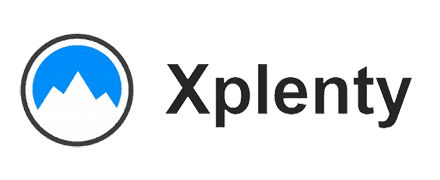 As far as we have been able to ascertain, Integrate.io (Xplenty) currently has only one primary product: Xplenty Platform. Take a look at the screen shots below. The ETL tools from Integrate.io (Xplenty) are strong in the following areas, among others:
As far as we have been able to ascertain, Integrate.io (Xplenty) currently has only one primary product: Xplenty Platform. Take a look at the screen shots below. The ETL tools from Integrate.io (Xplenty) are strong in the following areas, among others:
- ETL
- data integration
- API
- data pipelines
- security
- CDC
- ELT
- low-code
- data integrity
- data sources
11. Microsoft ETL & Data Integration
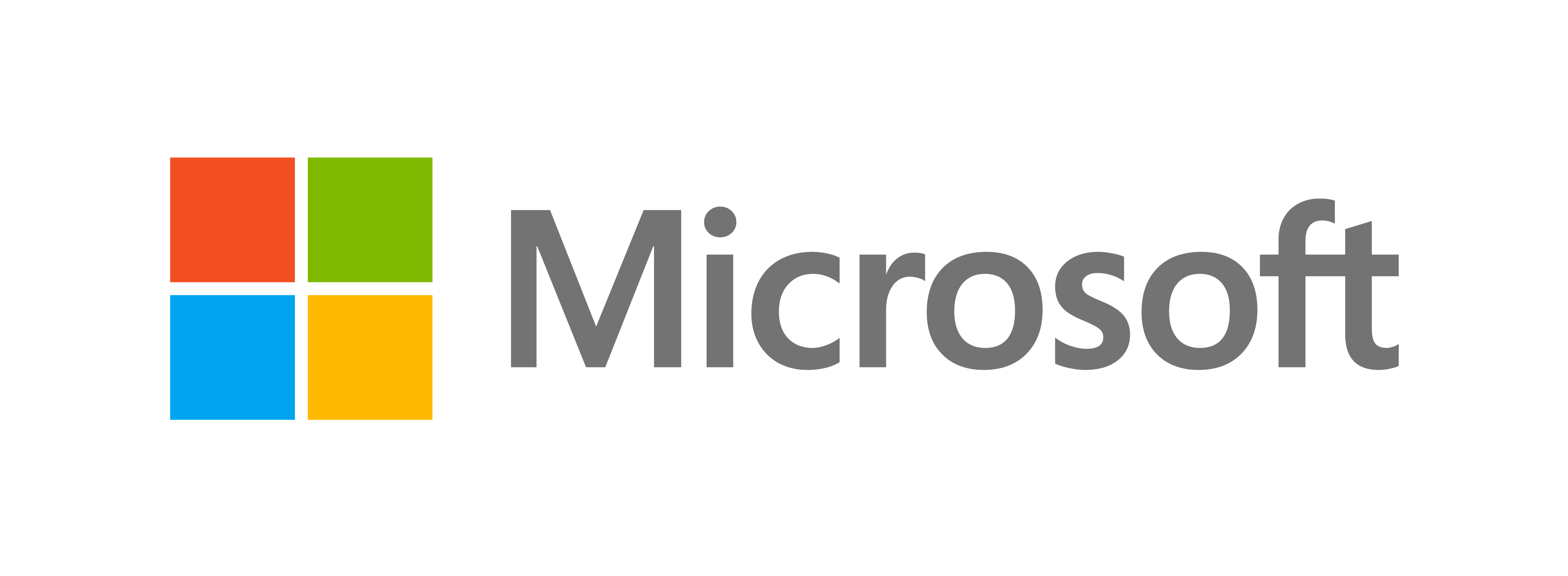 Microsoft is widely known for its products Azure Data Factory, Microsoft Azure, Azure Data Lake, Azure Synapse Analytics, and DQS. Take a look at the images below. The ETL tools from Microsoft are strong in the following areas, among others:
Microsoft is widely known for its products Azure Data Factory, Microsoft Azure, Azure Data Lake, Azure Synapse Analytics, and DQS. Take a look at the images below. The ETL tools from Microsoft are strong in the following areas, among others:
- SQL
- sql server
- BLOB
- data quality
- data warehouse
- security
- data catalog
- windows
- data integration
- big data
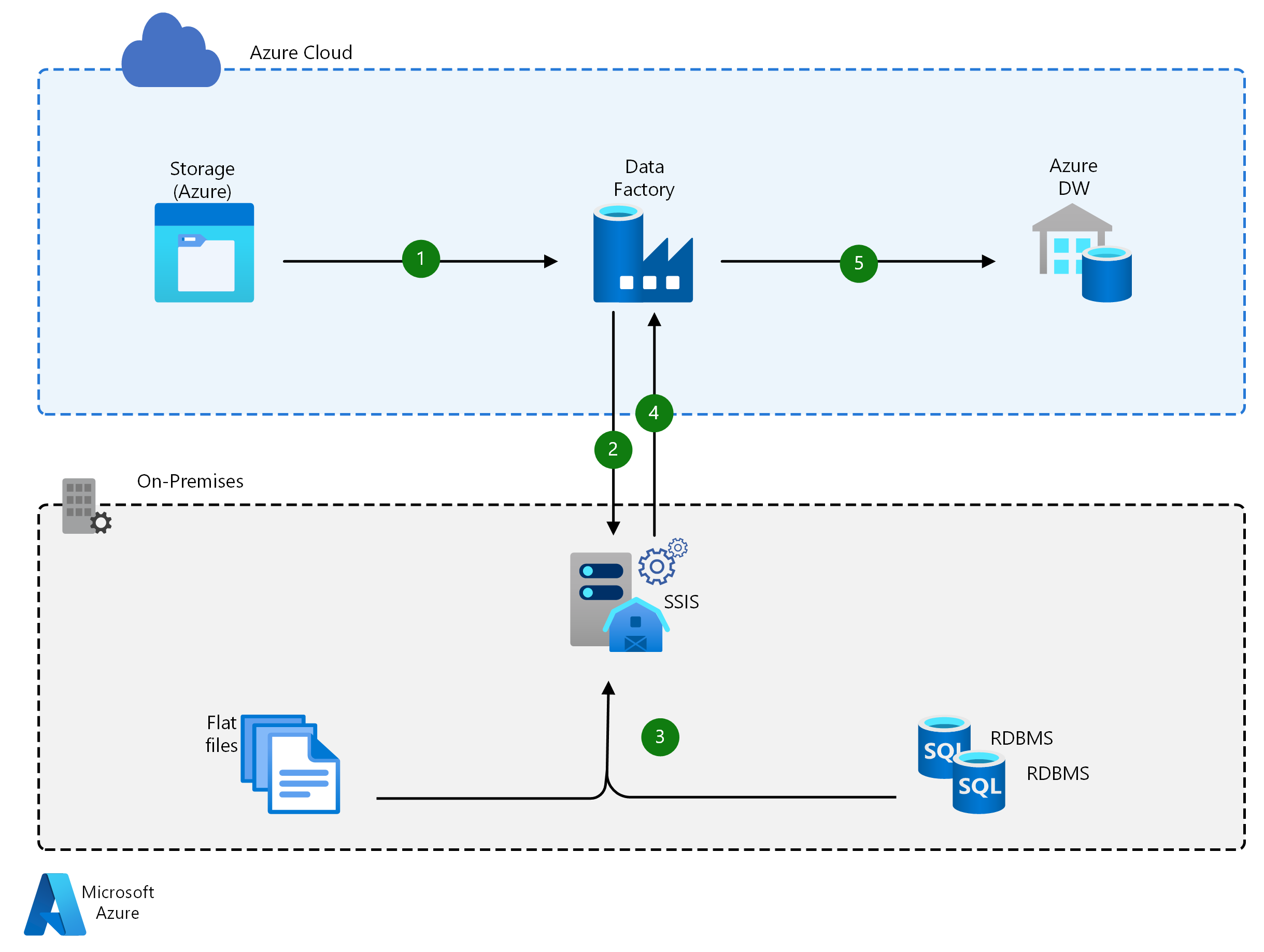 Figure 25: Azure Data Factory
Figure 25: Azure Data Factory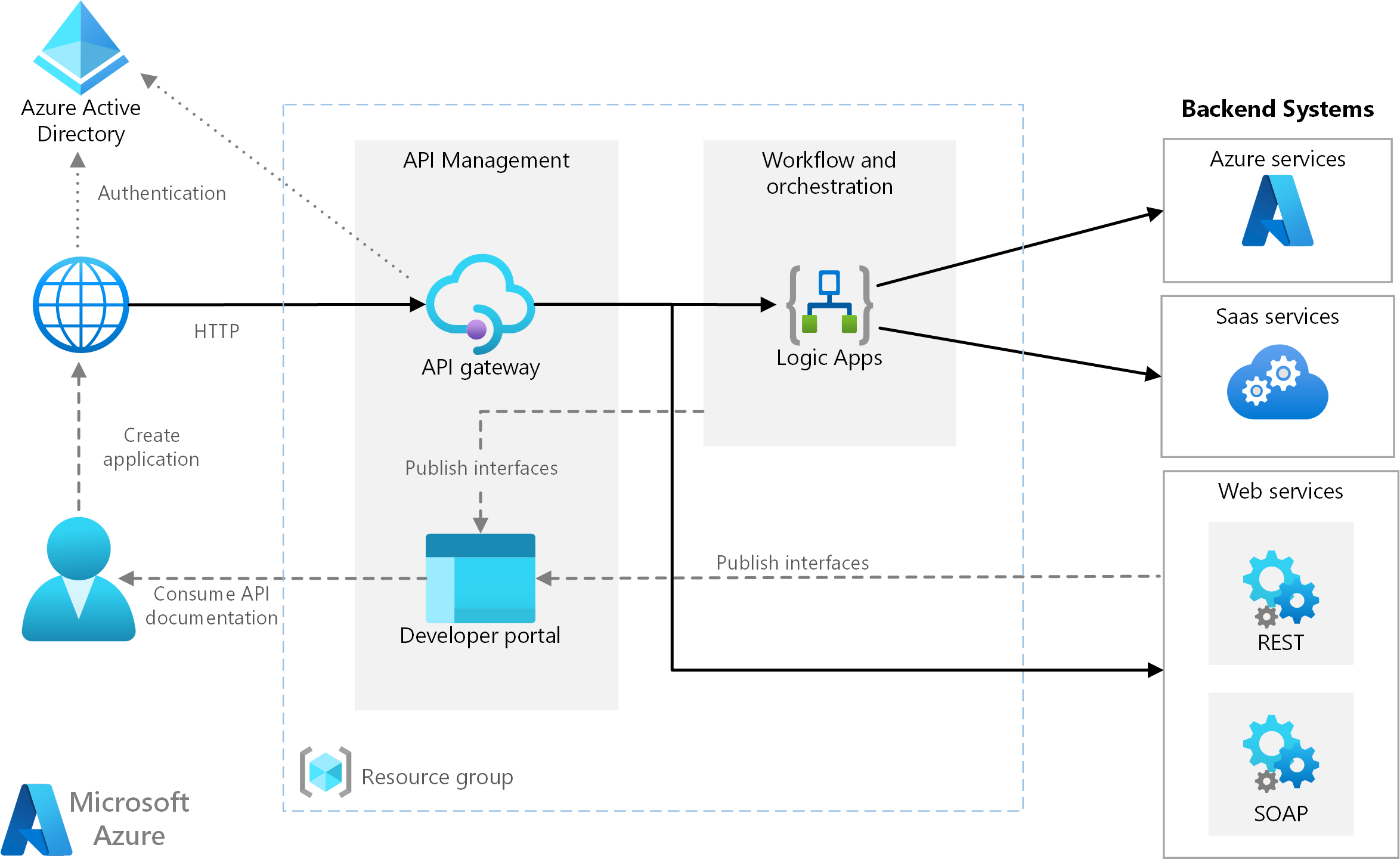 Figure 26: Microsoft Azure
Figure 26: Microsoft Azure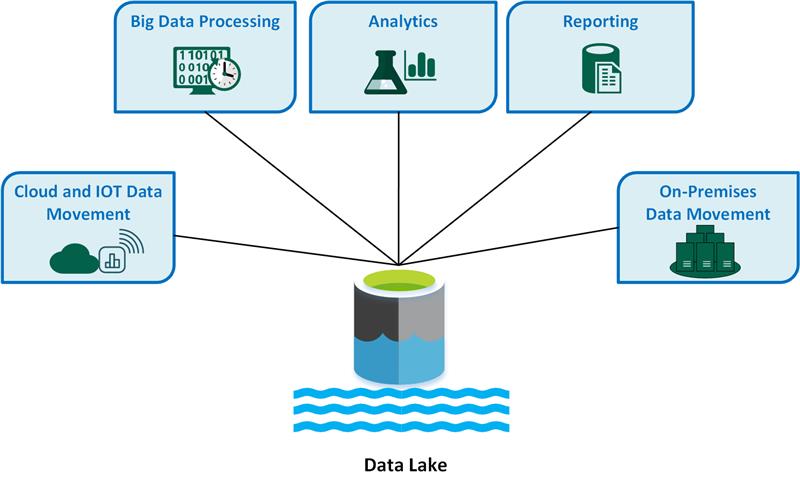 Figure 27: Azure Data Lake
Figure 27: Azure Data Lake12. OpenText
 The ETL tools from the ETL & Data Integration vendor OpenText focus on the support of the following functionalities:
The ETL tools from the ETL & Data Integration vendor OpenText focus on the support of the following functionalities:
- big data analytics
- security
- file transfer
- managed file transfer
- AWS
- data integration
- data transformation
- data sources
- data mapping
OpenText serves the market with the following products, among others: OpenText Gupta, OpenText Magellan, OpenText InfoArchive, OpenText Business Network, and OpenText Connect (see the images below). We took a closer look at them.
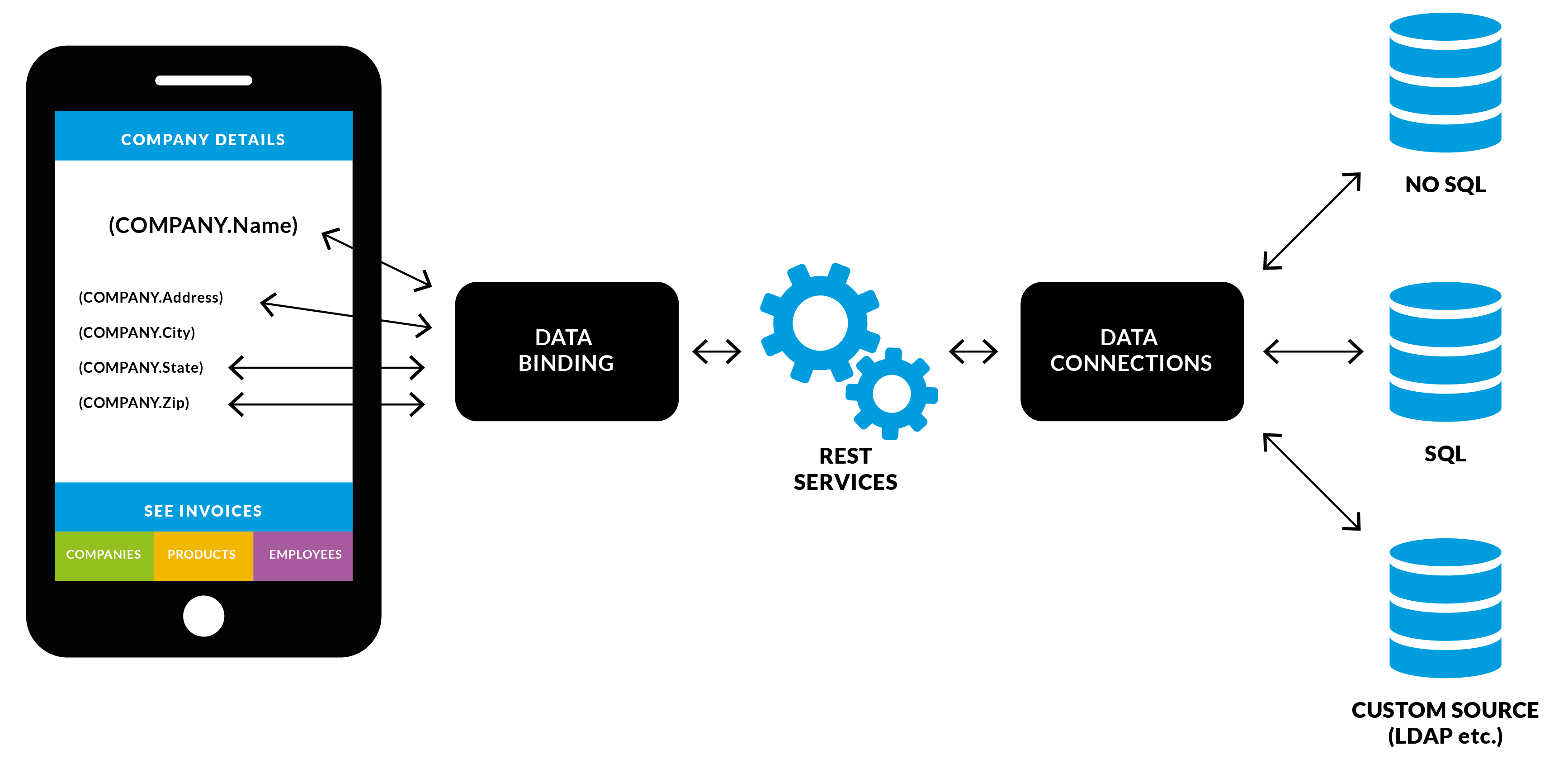 Figure 28: OpenText Gupta
Figure 28: OpenText Gupta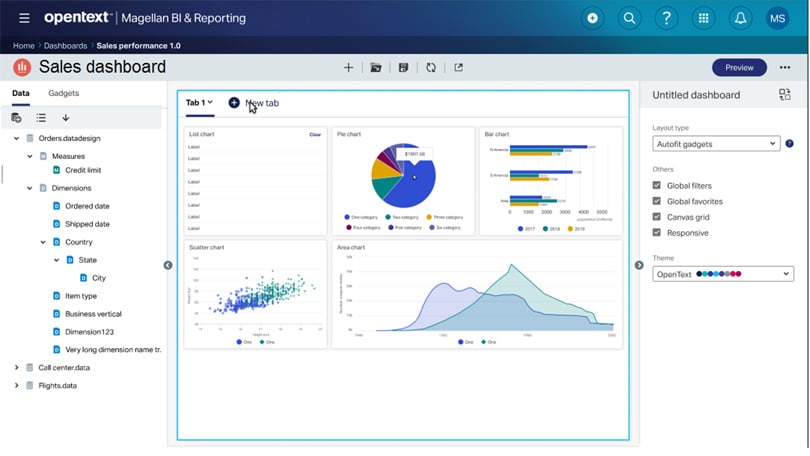 Figure 29: OpenText Magellan
Figure 29: OpenText Magellan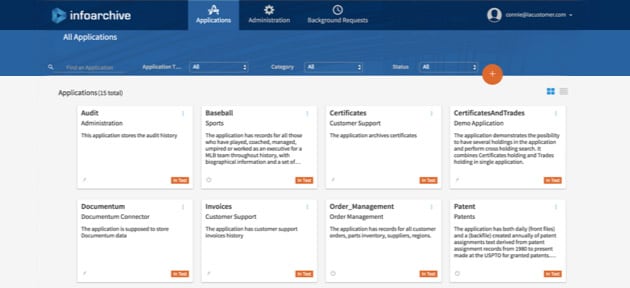 Figure 30: OpenText InfoArchive
Figure 30: OpenText InfoArchive13. Oracle ETL & Data Integration
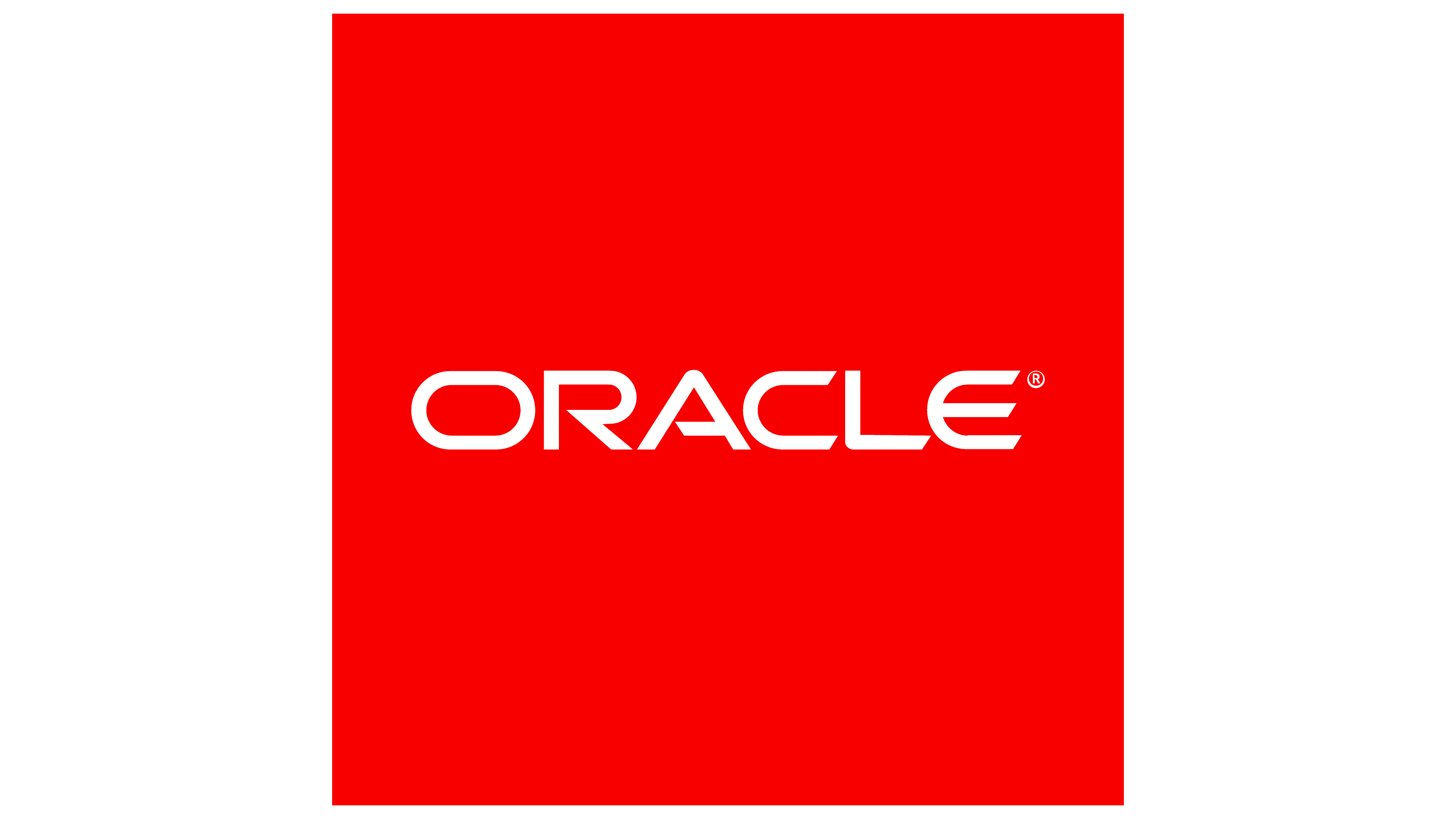 Oracle is widely known for its products Oracle Data Integrator, Oracle Goldengate, Oracle Enterprise Data Quality, Oracle Warehouse Builder, and Oracle Streams. Take a look at the images below. The ETL tools from Oracle are strong in the following areas, among others:
Oracle is widely known for its products Oracle Data Integrator, Oracle Goldengate, Oracle Enterprise Data Quality, Oracle Warehouse Builder, and Oracle Streams. Take a look at the images below. The ETL tools from Oracle are strong in the following areas, among others:
- data quality
- data catalog
- data integration platform
- data warehouse
- metadata management
- autonomous data warehouse
- data profiling
- data management
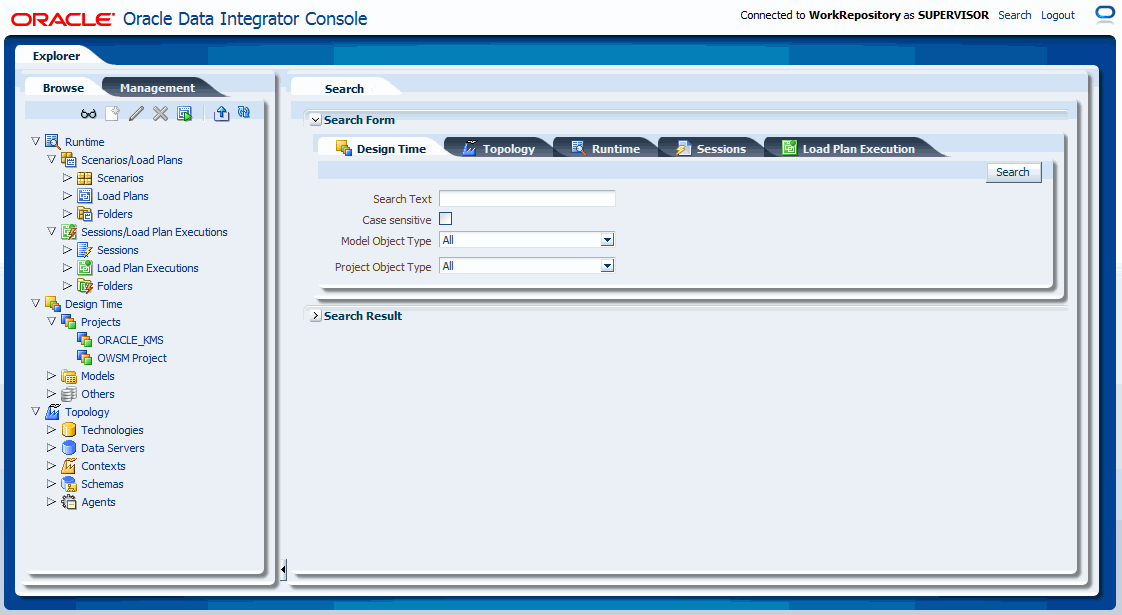 Figure 31: Oracle Data Integrator
Figure 31: Oracle Data Integrator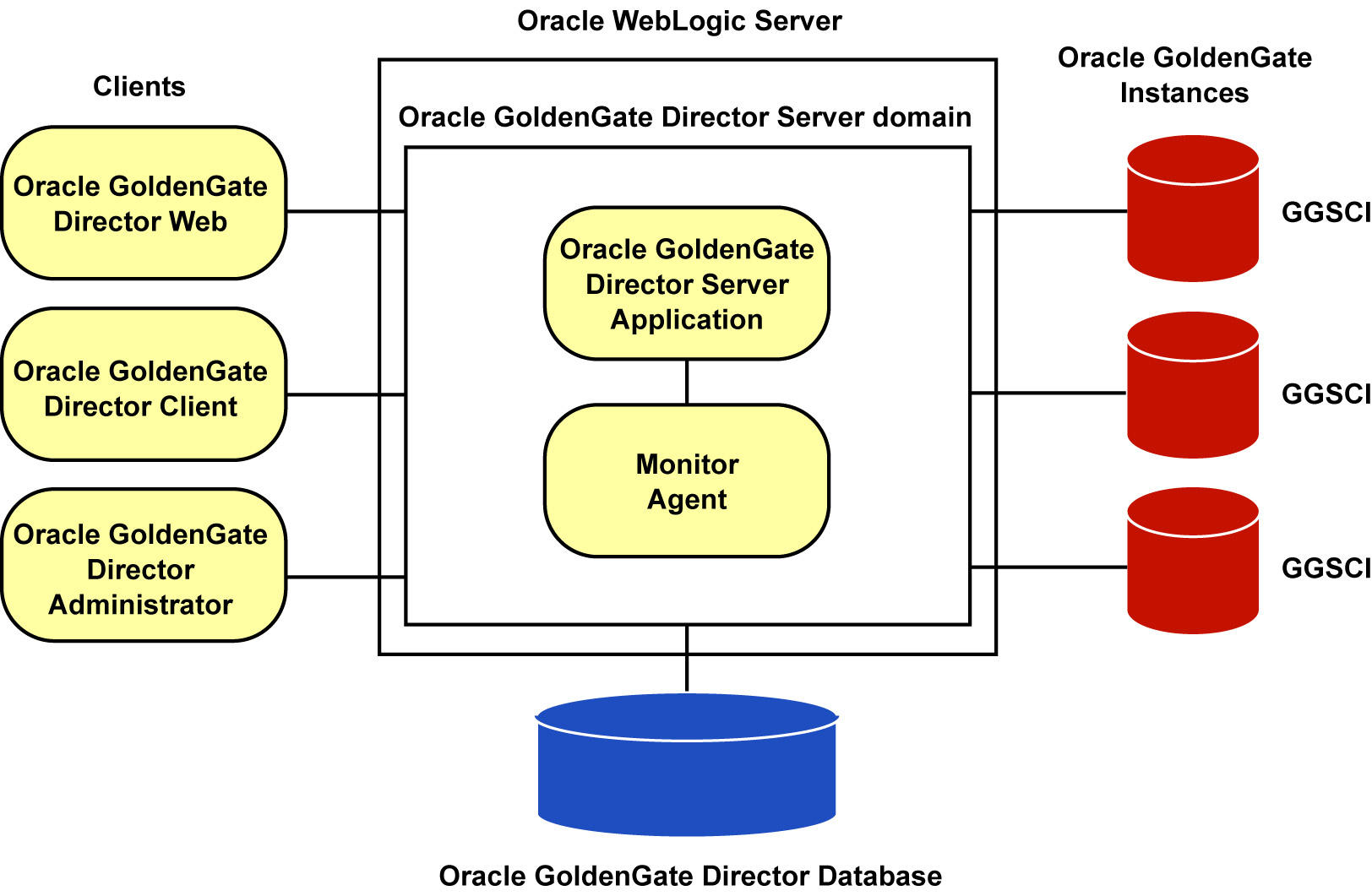 Figure 32: Oracle Goldengate
Figure 32: Oracle Goldengate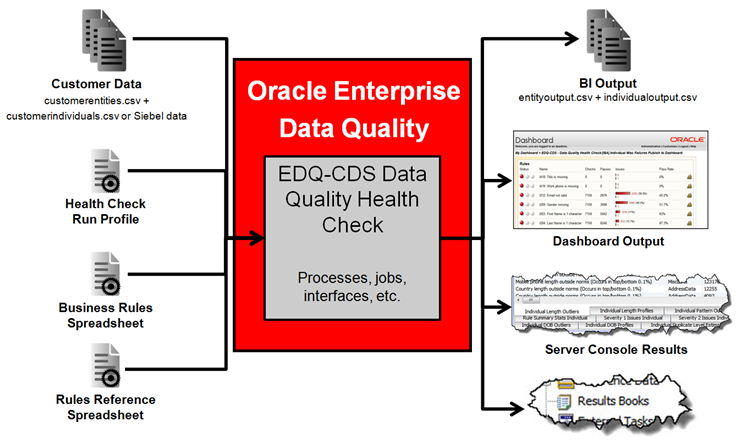 Figure 33: Oracle Enterprise Data Quality
Figure 33: Oracle Enterprise Data Quality14. Precisely
 Precisely is widely known for its products Precisely Connect, and Precisely Data Integration. The company is 100% specialized in ETL & Data Integration. Take a look at the images below. The ETL tools from Precisely are strong in the following areas, among others:
Precisely is widely known for its products Precisely Connect, and Precisely Data Integration. The company is 100% specialized in ETL & Data Integration. Take a look at the images below. The ETL tools from Precisely are strong in the following areas, among others:
- data integration
- ETL
- data integrity
- CDC
- data pipelines
- API
- AWS
- data quality
- big data
- data migration
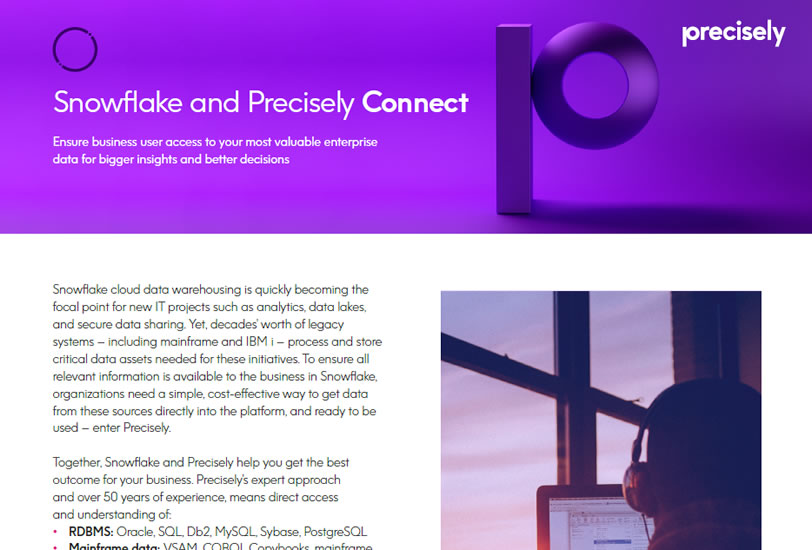 Figure 34: Precisely Connect
Figure 34: Precisely Connect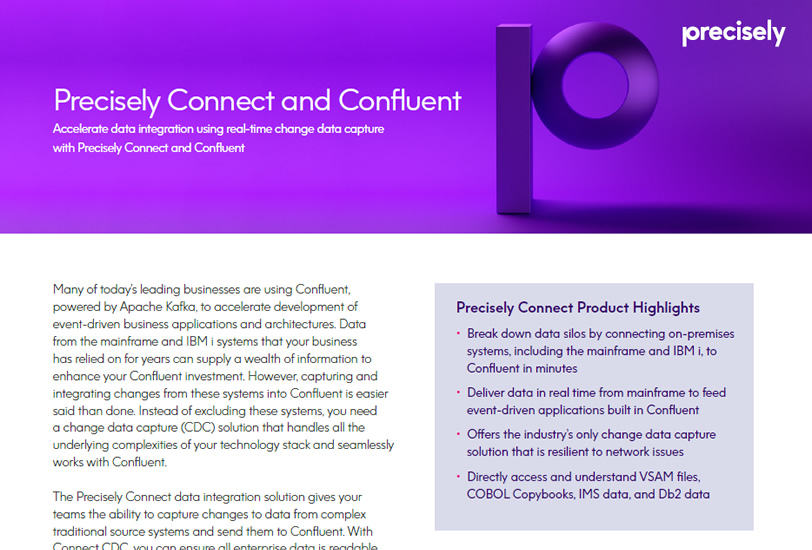 Figure 35: Precisely Connect
Figure 35: Precisely Connect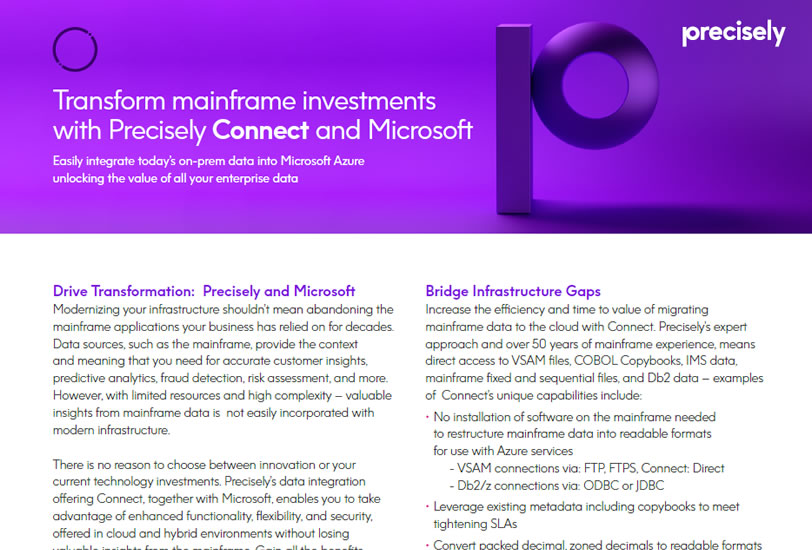 Figure 36: Precisely Connect
Figure 36: Precisely Connect15. Qlik
 Qlik is widely known for its products Qlik Replicate, Qlik Compose, Attunity, Qlik Data Integration, and Qlik Catalog. The company is 100% specialized in ETL & Data Integration. Take a look at the images below. The ETL tools from Qlik are strong in the following areas, among others:
Qlik is widely known for its products Qlik Replicate, Qlik Compose, Attunity, Qlik Data Integration, and Qlik Catalog. The company is 100% specialized in ETL & Data Integration. Take a look at the images below. The ETL tools from Qlik are strong in the following areas, among others:
- data integration
- cloud data integration
- salesforce
- data sources
- data warehouse
- data pipelines
- metadata
- data transfer
- API
- real-time data
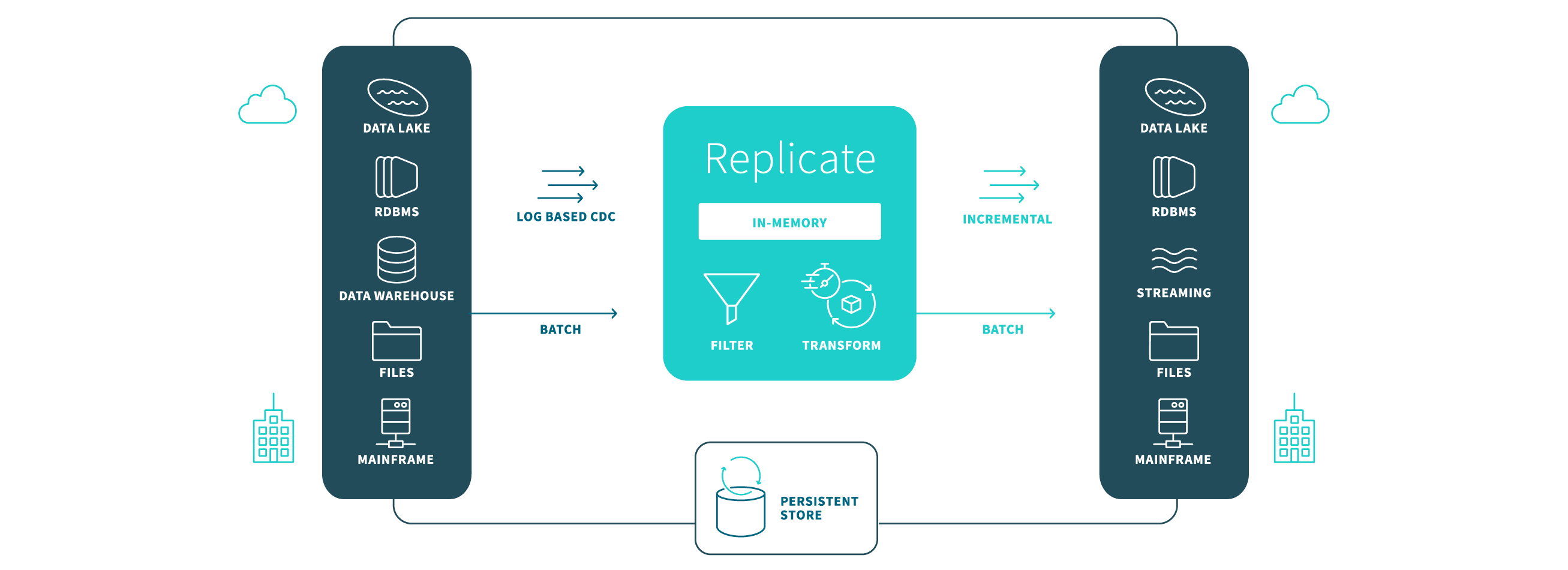 Figure 37: Qlik Replicate
Figure 37: Qlik Replicate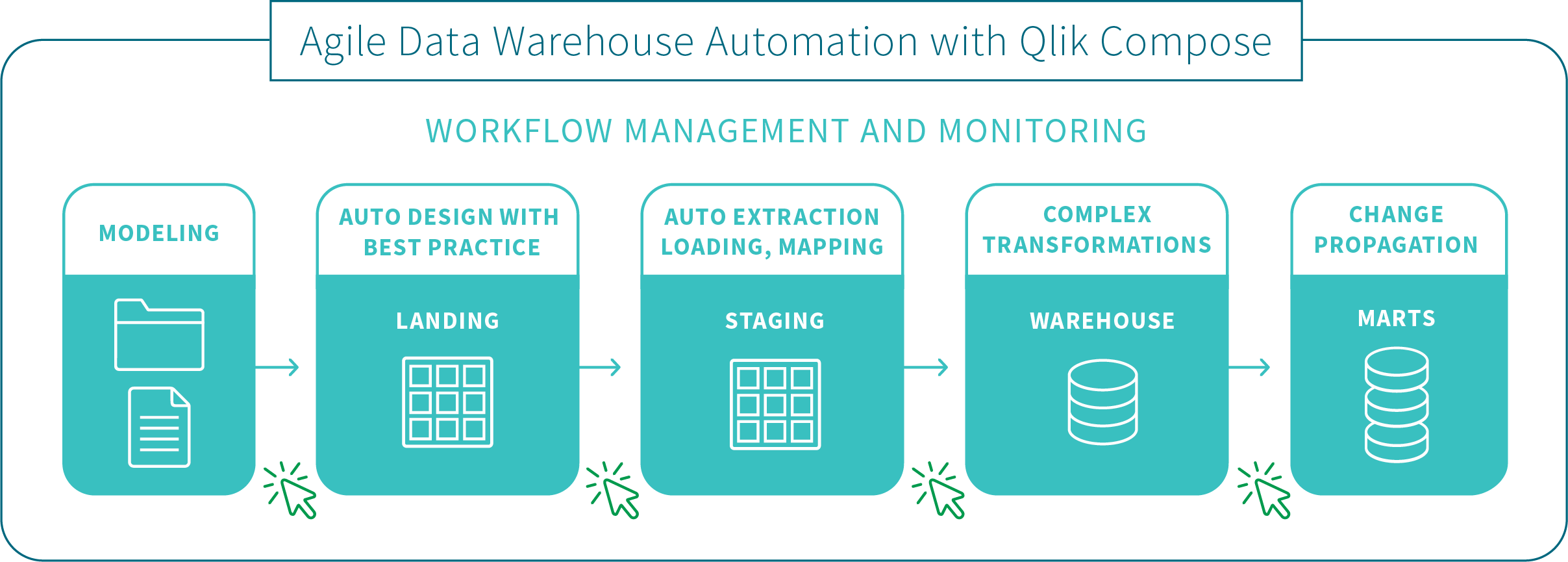 Figure 38: Qlik Compose
Figure 38: Qlik Compose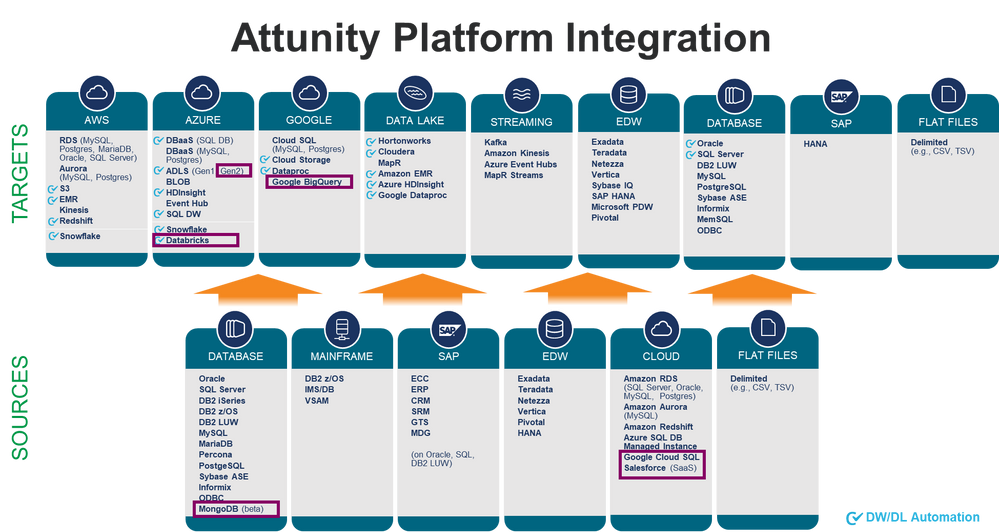 Figure 39: Attunity
Figure 39: Attunity16. SAP ETL & Data Integration
 The most well-known products in the area of ETL & Data Integration of the company SAP are SAP Data Services, SAP BW, SAP Master Data Governance, and SAP HANA Smart Data Integration. We analyzed and evaluated these ETL & Data Integration products in depth and meticulously. The ETL tools from SAP can be characterized by good support on the following topics:
The most well-known products in the area of ETL & Data Integration of the company SAP are SAP Data Services, SAP BW, SAP Master Data Governance, and SAP HANA Smart Data Integration. We analyzed and evaluated these ETL & Data Integration products in depth and meticulously. The ETL tools from SAP can be characterized by good support on the following topics:
- data integration
- data governance
- master data integration
- data management
- sybase
- data quality management
- data warehouse
- MDG
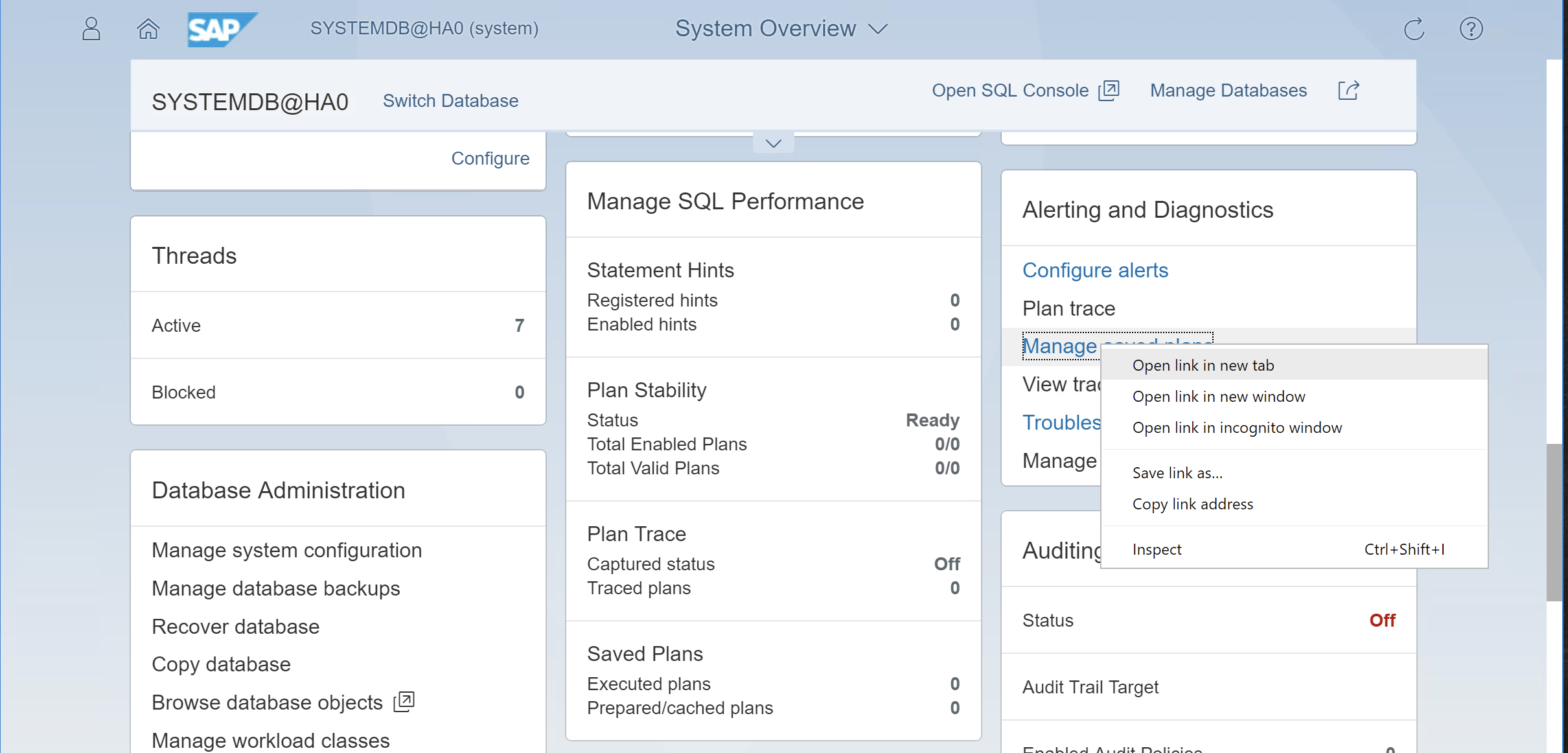 Figure 40: SAP HANA
Figure 40: SAP HANA Figure 41: SAP Data Services
Figure 41: SAP Data Services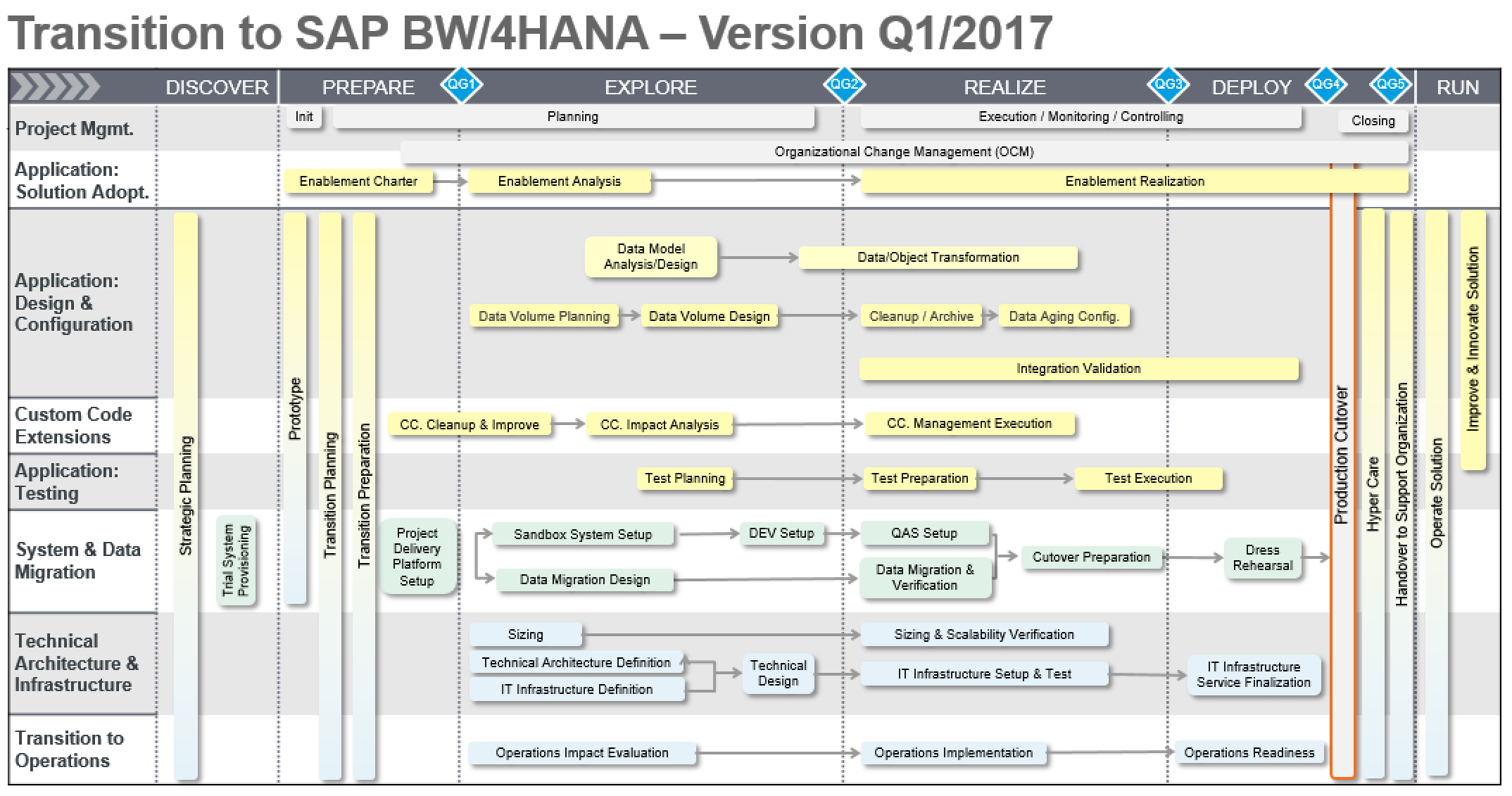 Figure 42: SAP BW
Figure 42: SAP BW17. SAS
 The ETL tools from the ETL & Data Integration vendor SAS focus on the support of the following functionalities:
The ETL tools from the ETL & Data Integration vendor SAS focus on the support of the following functionalities:
- data integration
- data quality
- metadata
- data management
- OLAP
- hadoop
- ETL
- data warehouse
- data governance
- data sources
SAS serves the market with the following products, among others: SAS Viya, SAS/ACCESS, SAS Data Integration Studio, and SAS Data Quality (see the images below). We took a closer look at them.
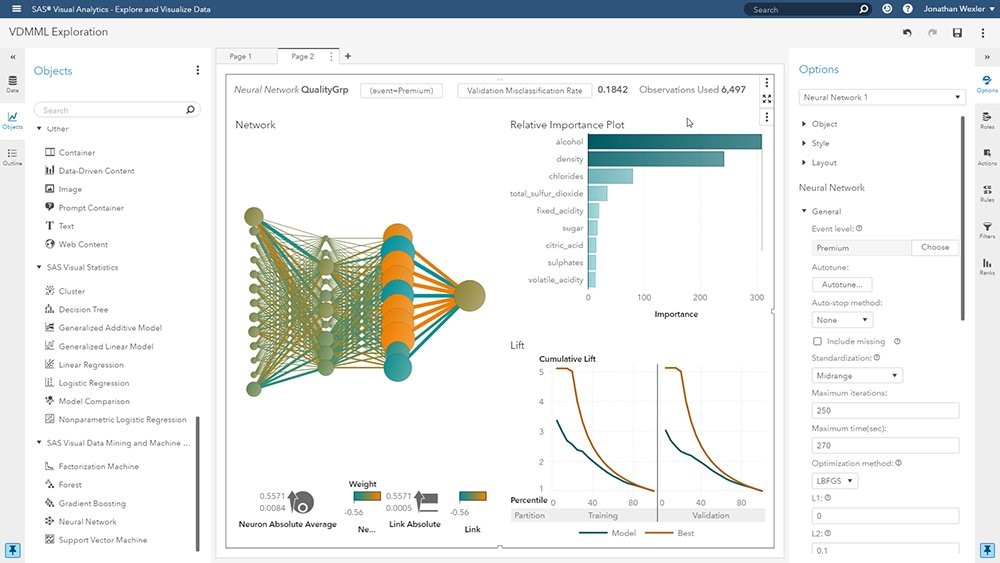 Figure 43: SAS Viya
Figure 43: SAS Viya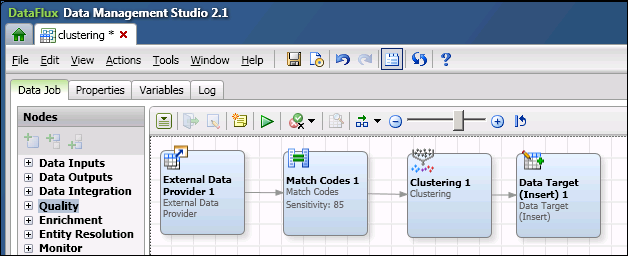 Figure 44: SAS Data Integration
Figure 44: SAS Data Integration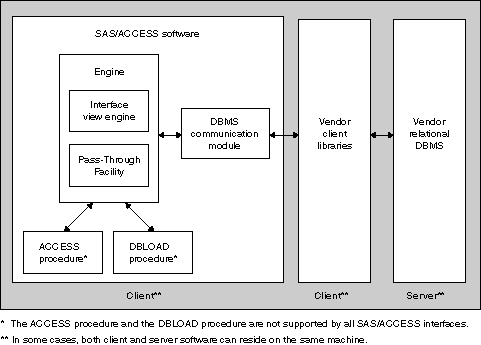 Figure 45: SAS/ACCESS
Figure 45: SAS/ACCESS18. Sesame Software
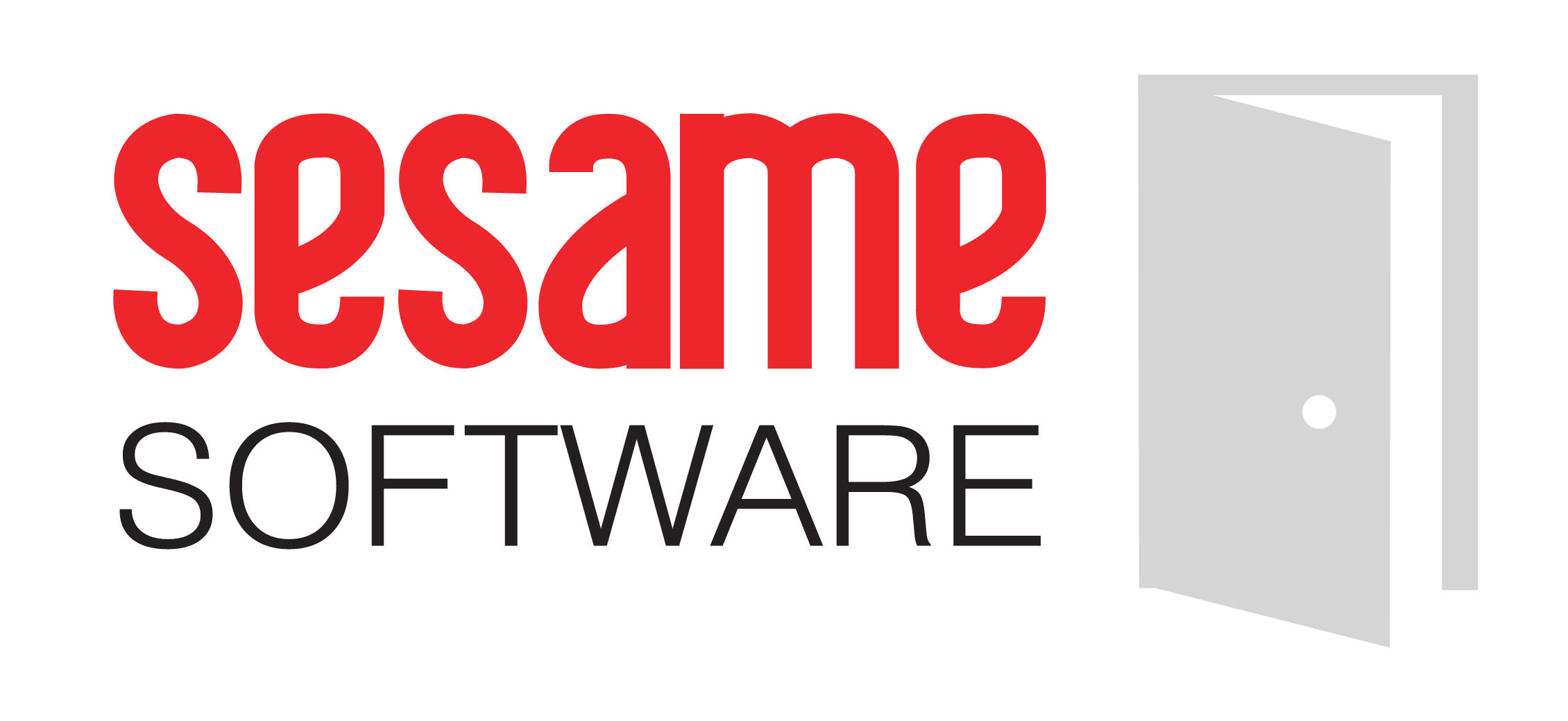 The ETL tools from the ETL & Data Integration vendor Sesame Software focus on the support of the following functionalities:
The ETL tools from the ETL & Data Integration vendor Sesame Software focus on the support of the following functionalities:
- data management
- data warehouse
- data integration
- salesforce
- data sources
- security
- data protection
- metadata
- data migration
- data mapping
Sesame Software serves the market with the following products, among others: Relational Junction, and Sesame Software Relational Junction (see the images below). We took a closer look at them.
19. Skyvia
 As far as we have been able to ascertain, Skyvia currently has only one primary product: Skyvia ETL. Take a look at the screen shots below. The ETL tools from Skyvia are strong in the following areas, among others:
As far as we have been able to ascertain, Skyvia currently has only one primary product: Skyvia ETL. Take a look at the screen shots below. The ETL tools from Skyvia are strong in the following areas, among others:
- ETL
- data integration
- CSV
- SQL
- data quality
- data sources
- cloud data integration
- security
- data management
- data warehouse
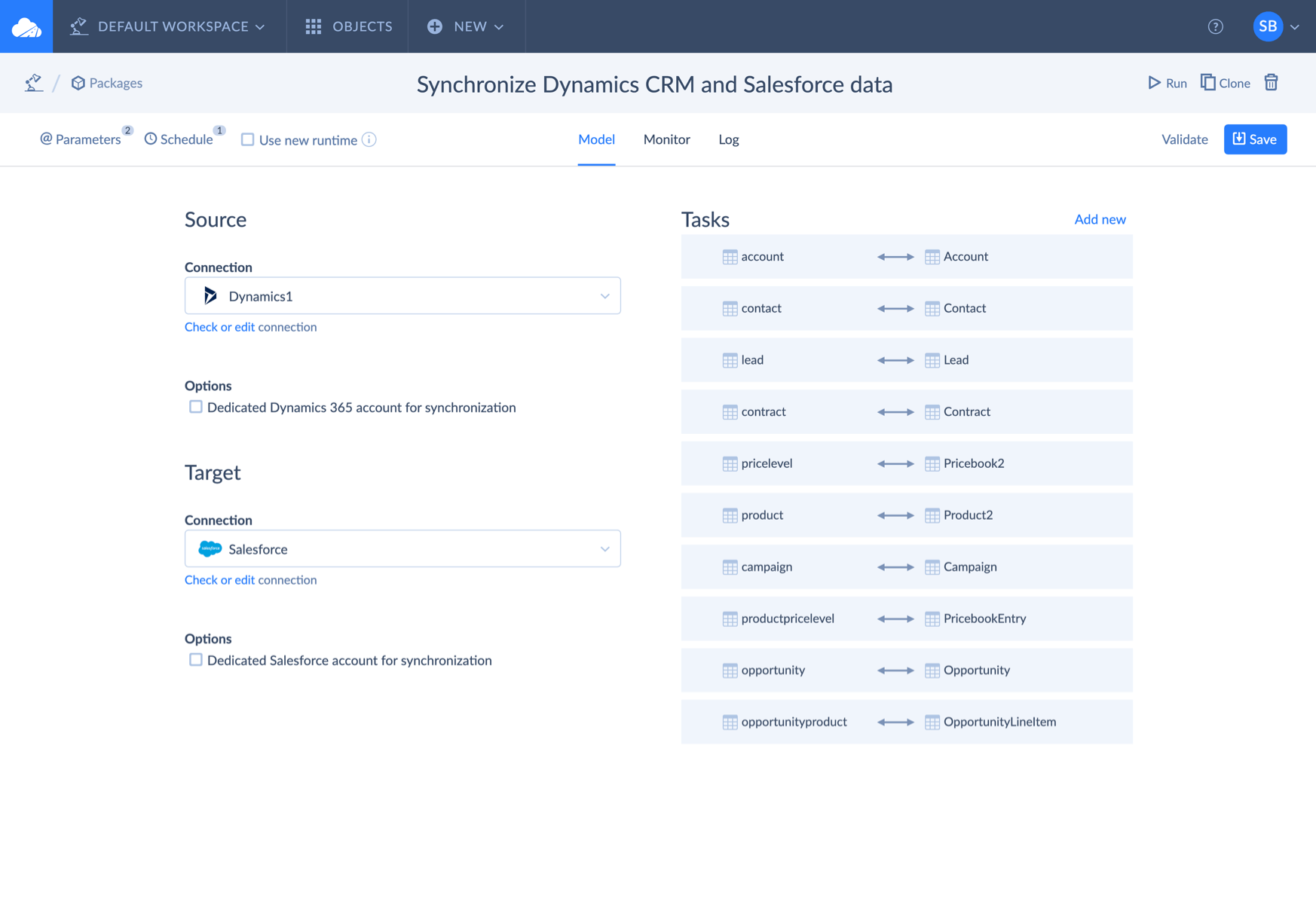 Figure 46: Skyvia ETL
Figure 46: Skyvia ETL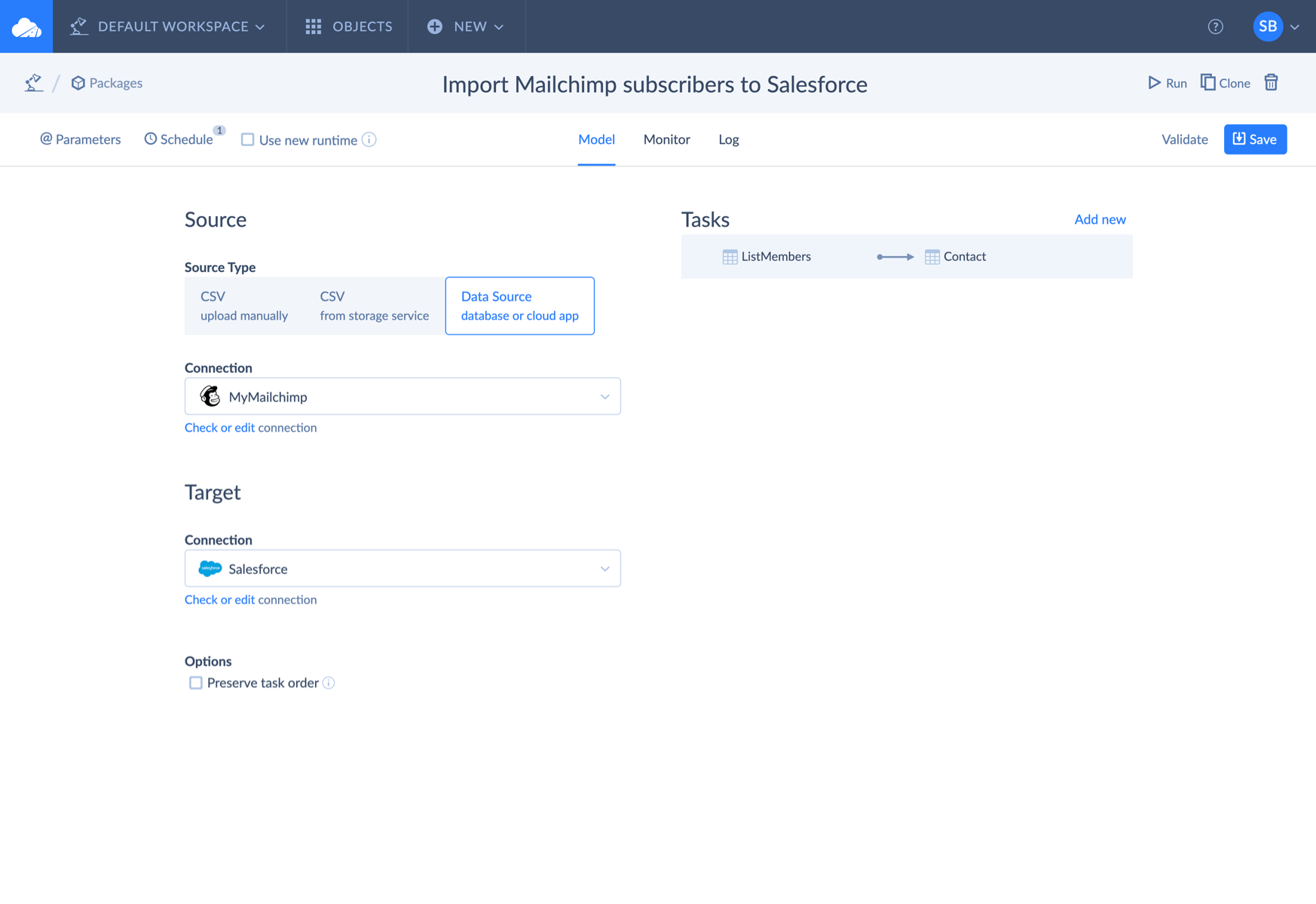 Figure 47: Skyvia ETL
Figure 47: Skyvia ETL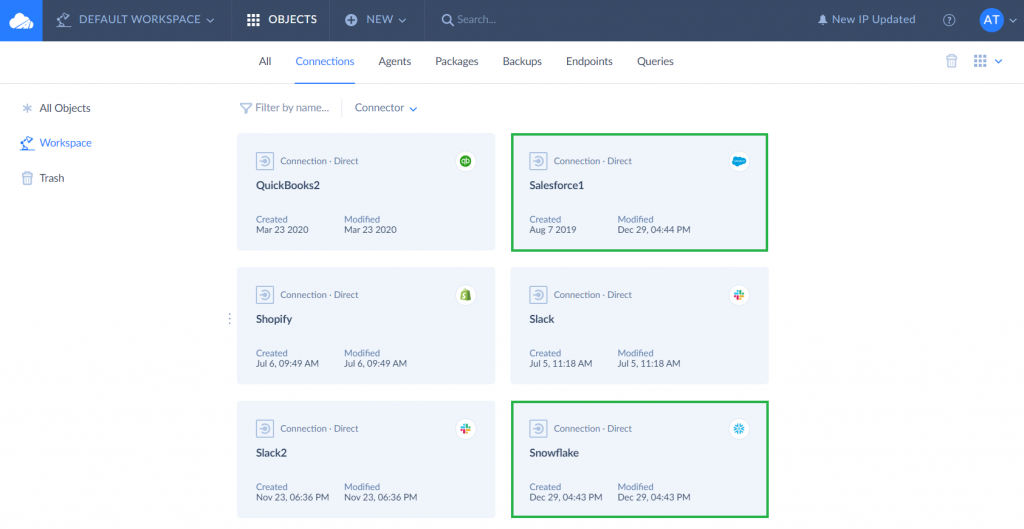 Figure 48: Skyvia ETL
Figure 48: Skyvia ETL20. SnapLogic
 SnapLogic is widely known for its products SnapLogic Intelligent Integration, SnapLogic Flows, SnapLogic Fast Data Loader, SnapLogic Patterns Catalog, and SnapLogic AutoSync. The company is 100% specialized in ETL & Data Integration. Take a look at the images below. The ETL tools from SnapLogic are strong in the following areas, among others:
SnapLogic is widely known for its products SnapLogic Intelligent Integration, SnapLogic Flows, SnapLogic Fast Data Loader, SnapLogic Patterns Catalog, and SnapLogic AutoSync. The company is 100% specialized in ETL & Data Integration. Take a look at the images below. The ETL tools from SnapLogic are strong in the following areas, among others:
- data warehouse
- data integration
- ETL
- data catalog
- metadata
- salesforce
- data sources
- data pipelines
- API
- amazon redshift
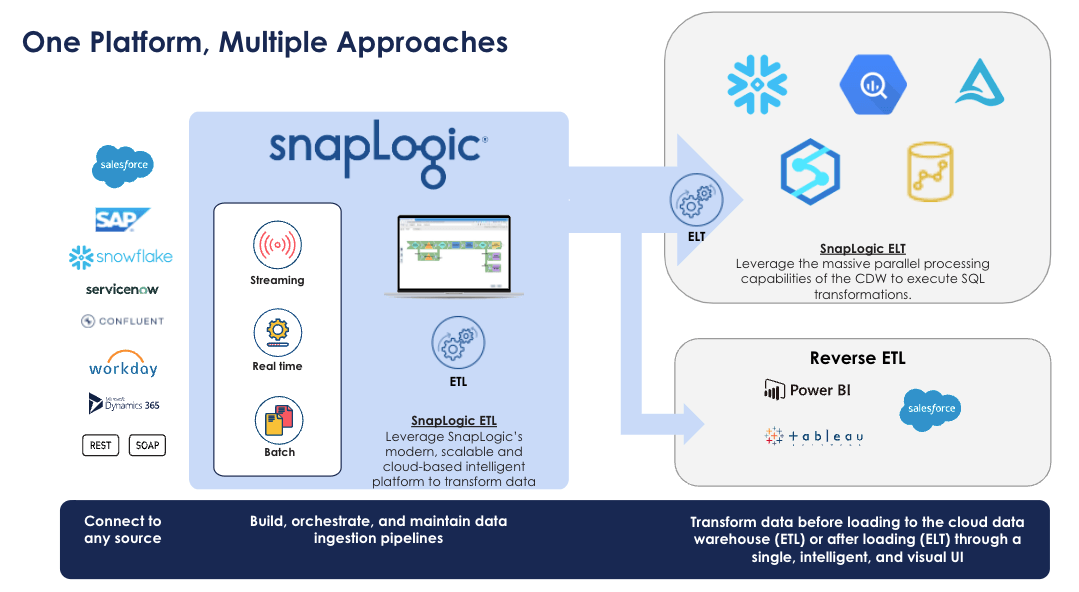 Figure 49: SnapLogic Intelligent Integration
Figure 49: SnapLogic Intelligent Integration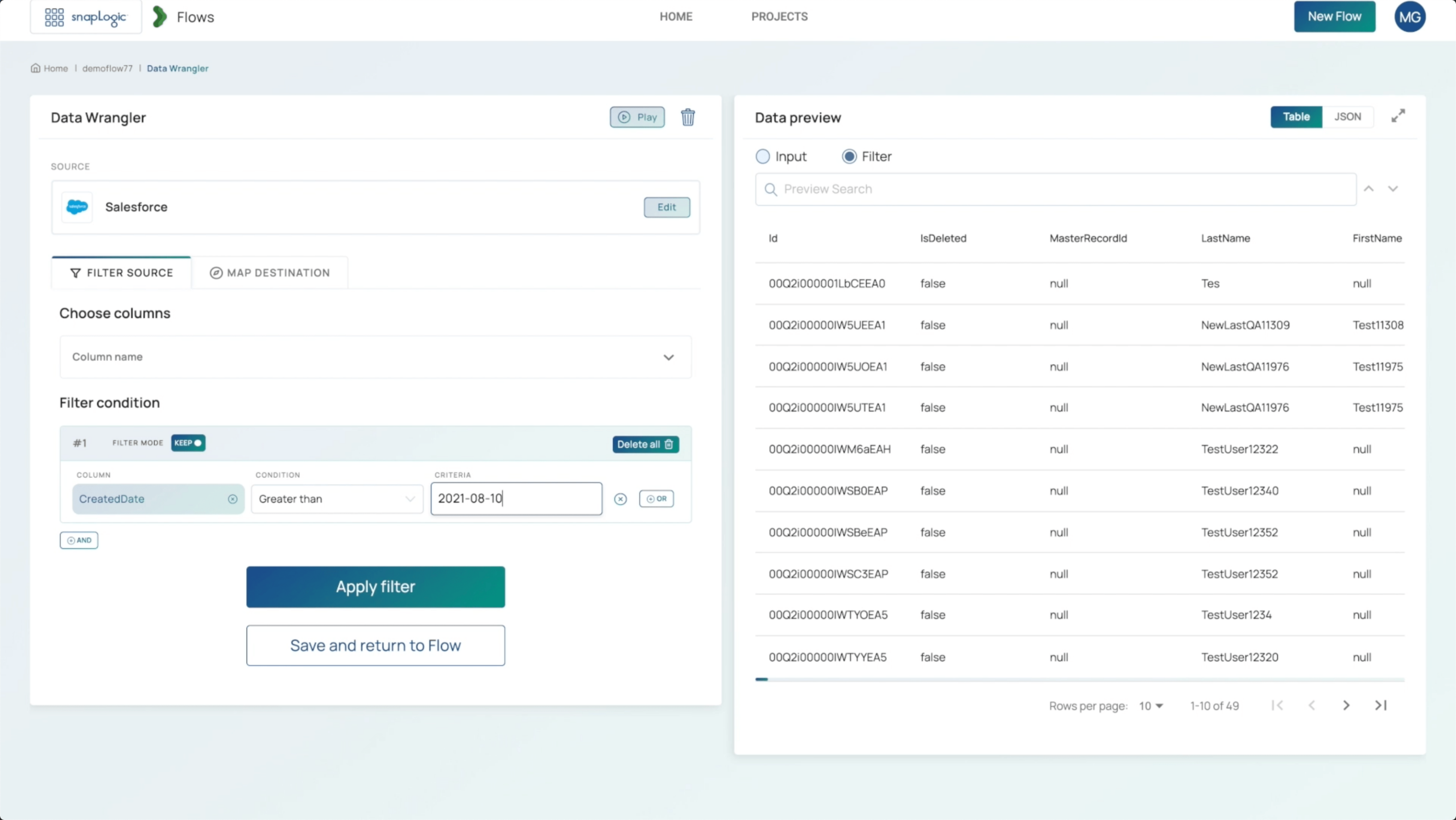 Figure 50: SnapLogic Flows
Figure 50: SnapLogic Flows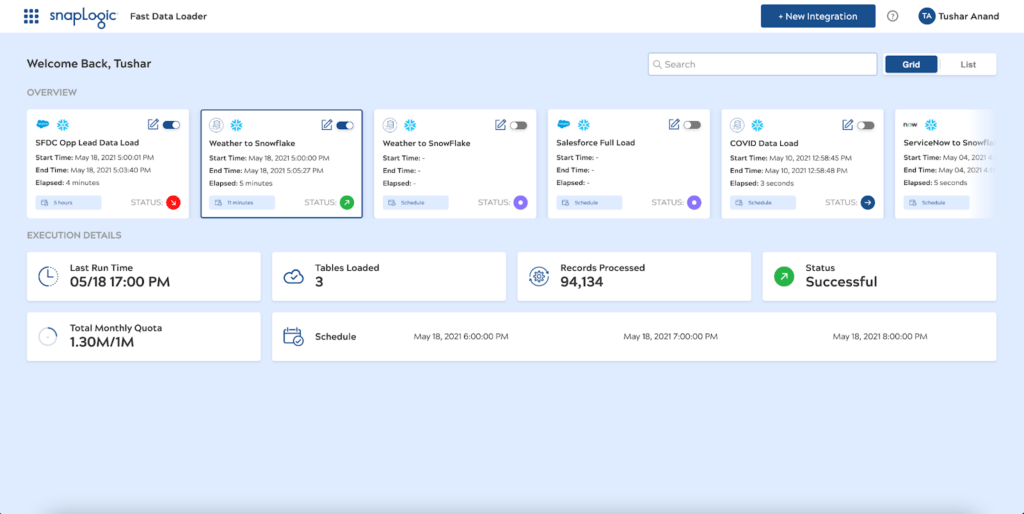 Figure 51: SnapLogic Fast Data Loader
Figure 51: SnapLogic Fast Data Loader21. Snowflake
 The most well-known products in the area of ETL & Data Integration of the company Snowflake are Snowflake Data Cloud, Snowflake Marketplace, Snowflake Data Warehouse, Snowflake Cloud Data Platform, and Snowflake Data Platform. We analyzed and evaluated these ETL & Data Integration products in depth and meticulously. The ETL tools from Snowflake can be characterized by good support on the following topics:
The most well-known products in the area of ETL & Data Integration of the company Snowflake are Snowflake Data Cloud, Snowflake Marketplace, Snowflake Data Warehouse, Snowflake Cloud Data Platform, and Snowflake Data Platform. We analyzed and evaluated these ETL & Data Integration products in depth and meticulously. The ETL tools from Snowflake can be characterized by good support on the following topics:
- data warehouse
- data lakes
- SQL
- AWS
- security
- cloud platforms
- authentication
- big data
- ETL
- data sources
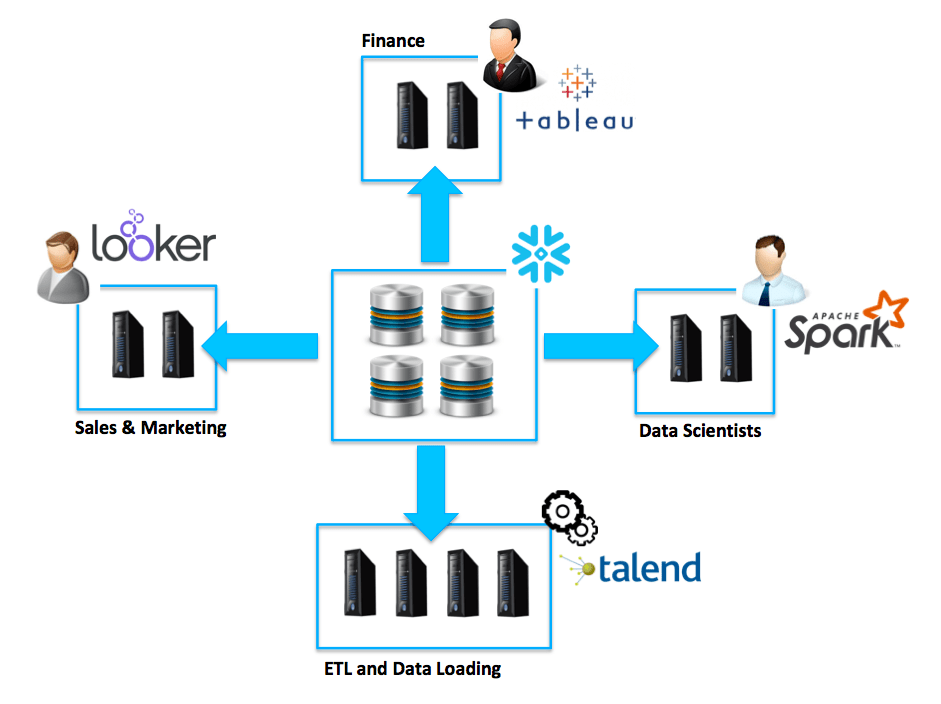 Figure 52: Snowflake Data Cloud
Figure 52: Snowflake Data Cloud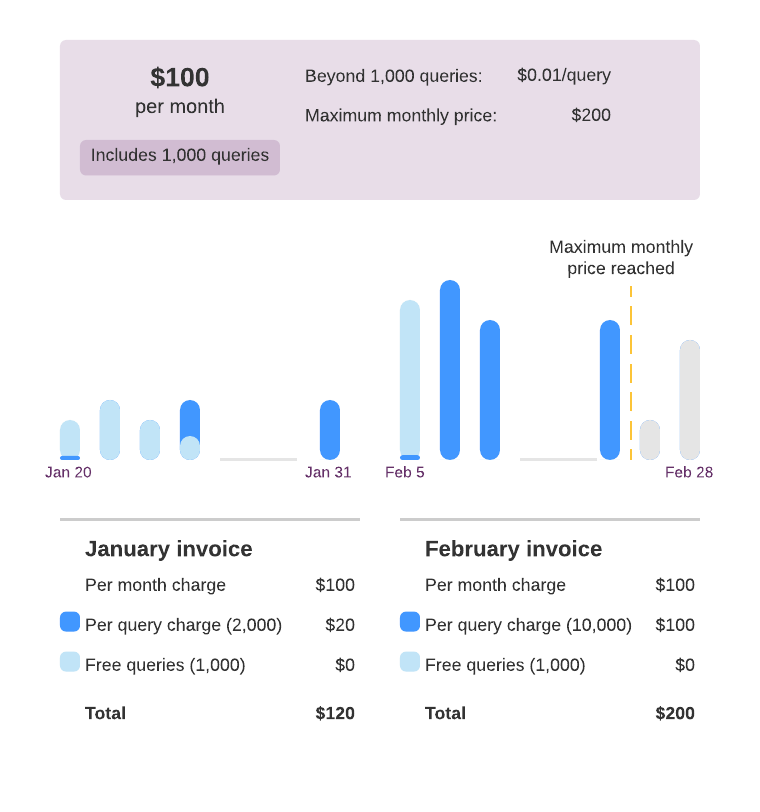 Figure 53: Snowflake Marketplace
Figure 53: Snowflake Marketplace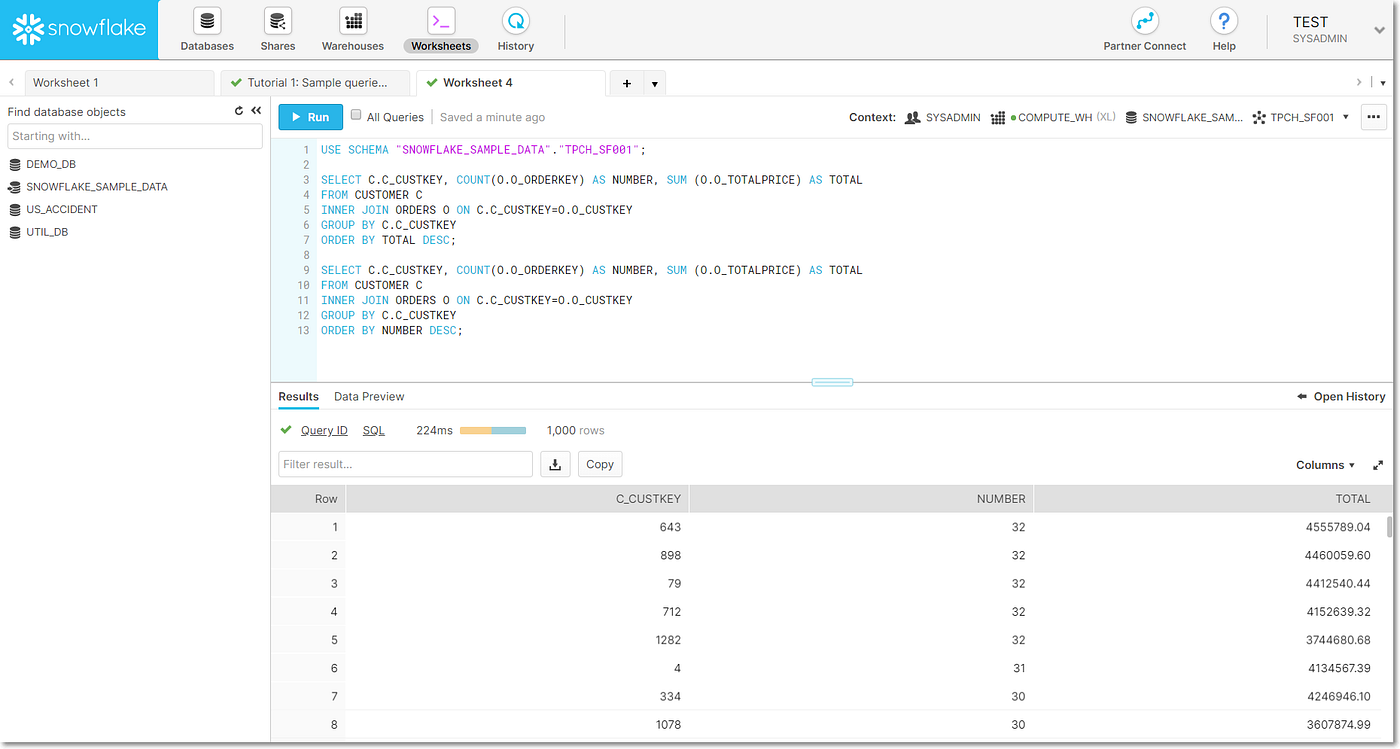 Figure 54: Snowflake Data Warehouse
Figure 54: Snowflake Data Warehouse22. Talend
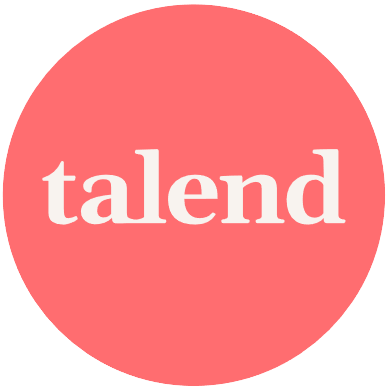 Talend is widely known for its products Talend Data Fabric, Talend Open Studio, Talend Data Catalog, Talend Data Integration, and Talend Data Preparation. The company is 100% specialized in ETL & Data Integration. Take a look at the images below. The ETL tools from Talend are strong in the following areas, among others:
Talend is widely known for its products Talend Data Fabric, Talend Open Studio, Talend Data Catalog, Talend Data Integration, and Talend Data Preparation. The company is 100% specialized in ETL & Data Integration. Take a look at the images below. The ETL tools from Talend are strong in the following areas, among others:
- data integration
- data management
- data quality
- CDC
- metadata
- ETL
- data catalog
- big data
- data governance
- cloud data integration
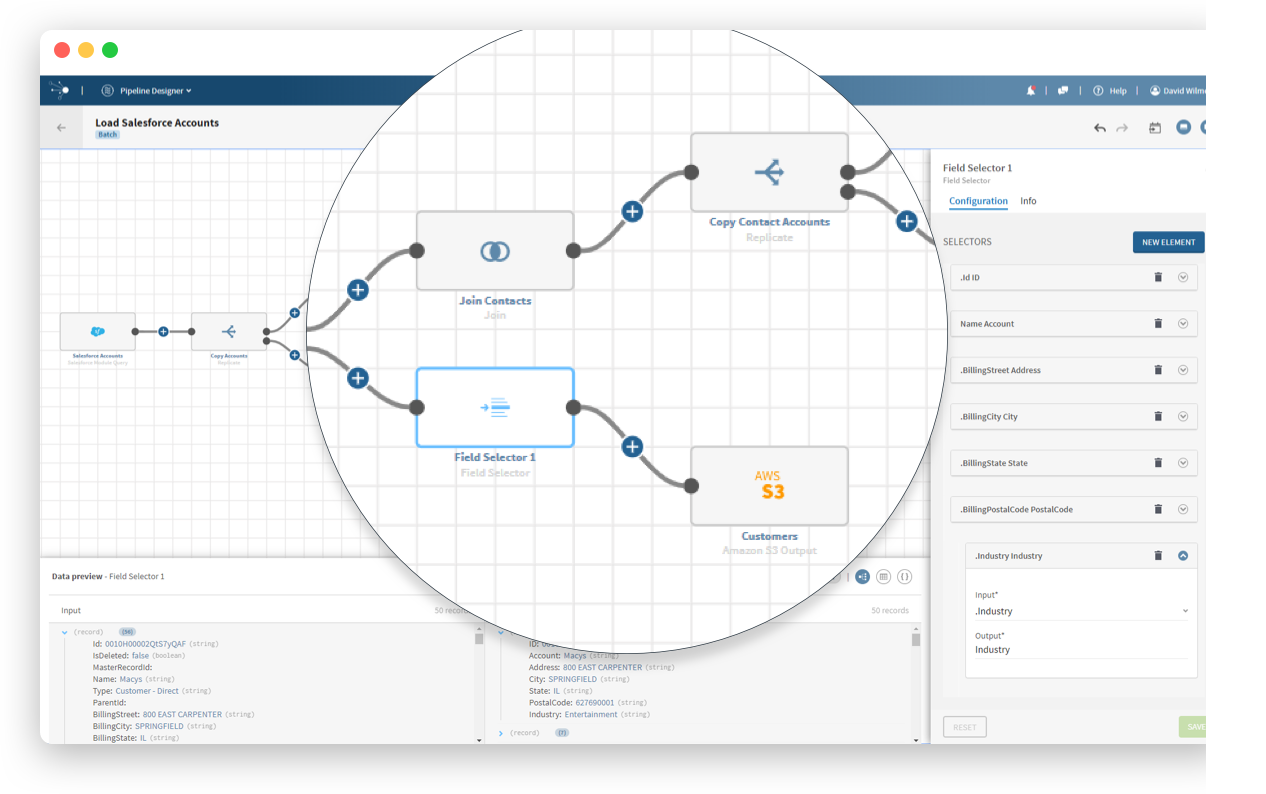 Figure 55: Talend Data Fabric
Figure 55: Talend Data Fabric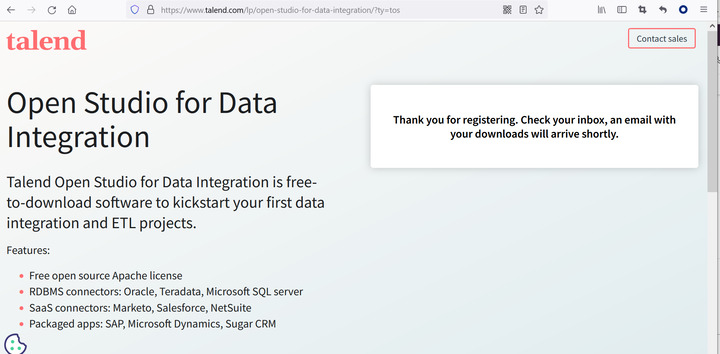 Figure 56: Talend Open Studio
Figure 56: Talend Open Studio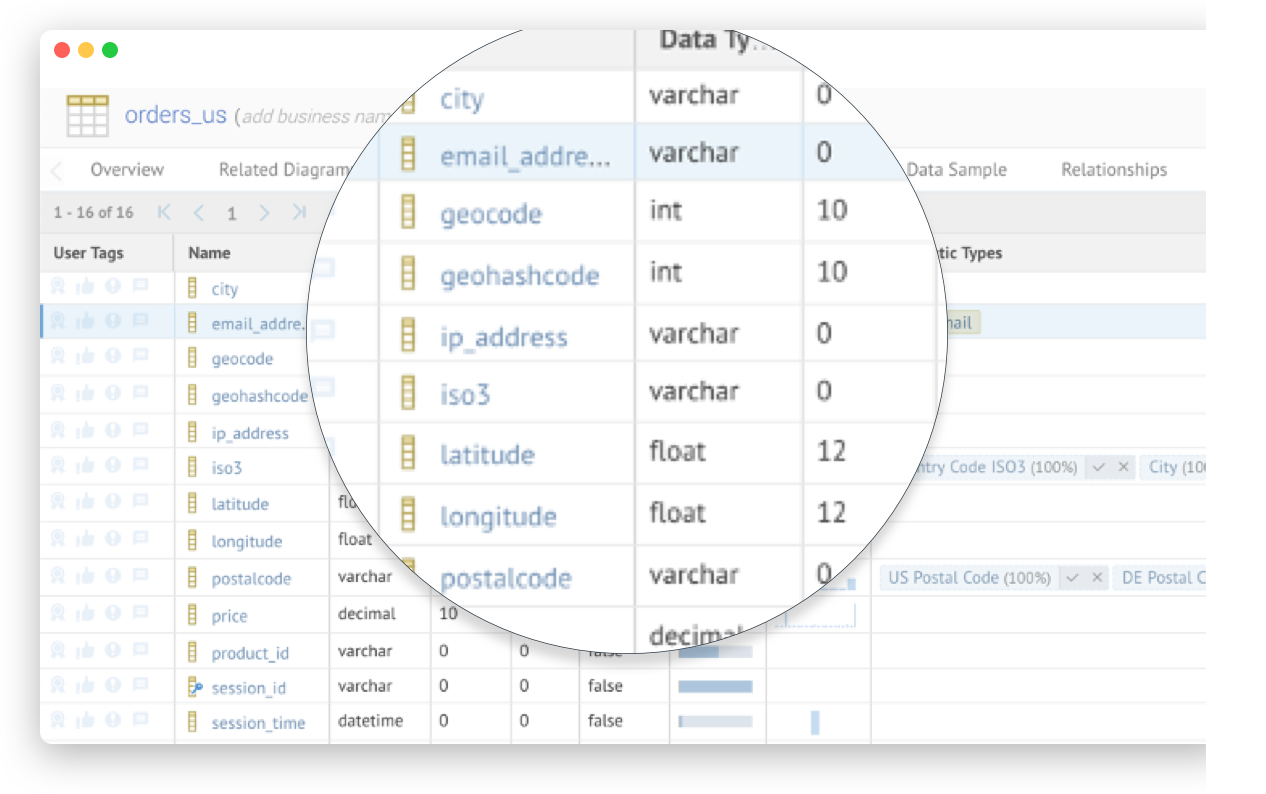 Figure 57: Talend Data Catalog
Figure 57: Talend Data Catalog23. Tibco
 Tibco is widely known for its products Omni-Gen, Tibco Webfocus, Tibco Data Virtualization, Tibco Cloud Integration, and Tibco MDM. The company is 100% specialized in ETL & Data Integration. Take a look at the images below. The ETL tools from Tibco are strong in the following areas, among others:
Tibco is widely known for its products Omni-Gen, Tibco Webfocus, Tibco Data Virtualization, Tibco Cloud Integration, and Tibco MDM. The company is 100% specialized in ETL & Data Integration. Take a look at the images below. The ETL tools from Tibco are strong in the following areas, among others:
- data virtualization
- data management
- data quality
- master data management
- data integration
- data sources
- apache
- windows
- API
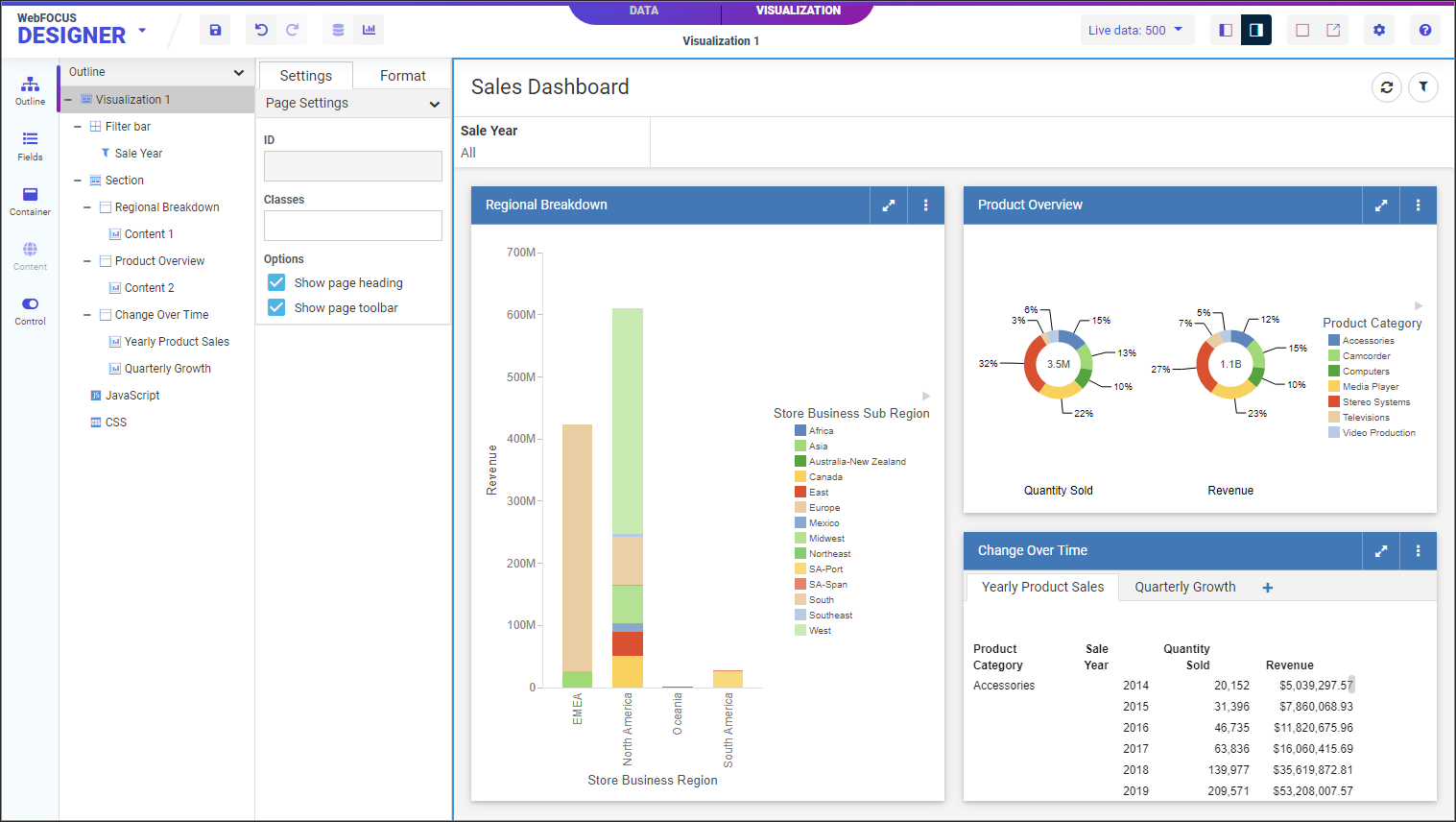 Figure 58: Tibco Webfocus
Figure 58: Tibco Webfocus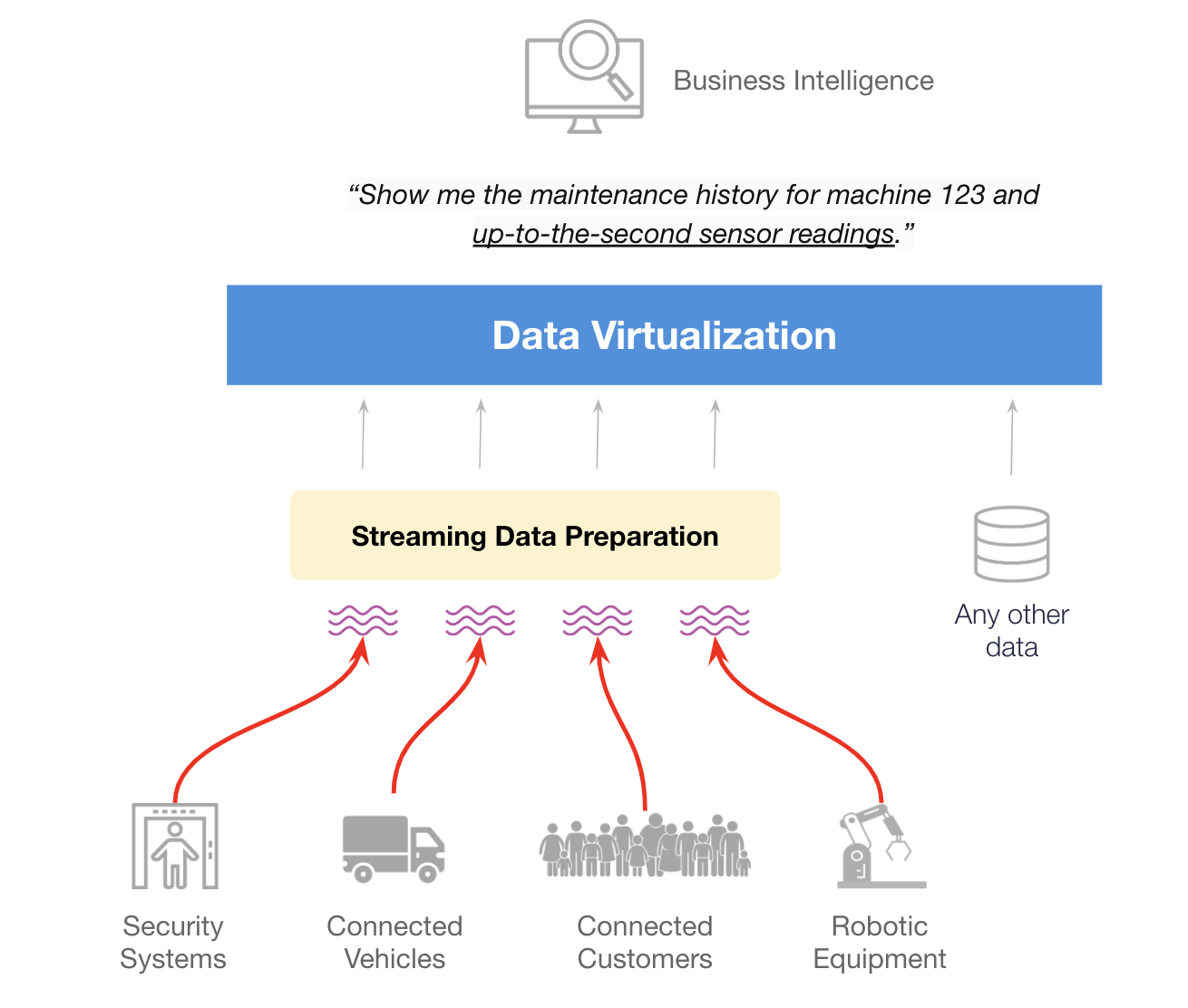 Figure 59: Tibco Data Virtualization
Figure 59: Tibco Data Virtualization Figure 60: Tibco Cloud Integration
Figure 60: Tibco Cloud Integration
ETL tools and the data warehouse
Today, the top ETL tools in the market have vastly expanded their functionality beyond data warehousing and ETL. They now contain extended functionalities for data profiling, data cleansing, Enterprise Application Integration (EAI), Big Data processing, data governance, and master data management. Learn more about the top ETL tools in our 100% vendor-neutral guide, or discover the 9 reasons why you should build a data warehouse.
The ETL & Data Integration Guide 2025 Whatever ETL tool you need, never go by gut instinct, but always base your choice on objective data. In our ETL & Data Integration Guide™ 2025 you will find all major ETL software you can compare on more than 250 aspects. In addition, this guide includes a unique, online mini-course on ETL & Data Integration, allowing you to quickly grow into your role as a data integration specialist.
Whatever ETL tool you need, never go by gut instinct, but always base your choice on objective data. In our ETL & Data Integration Guide™ 2025 you will find all major ETL software you can compare on more than 250 aspects. In addition, this guide includes a unique, online mini-course on ETL & Data Integration, allowing you to quickly grow into your role as a data integration specialist.
ETL is not enough, you need BI software too
ETL and data integration software are primarily meant to perform the extraction, transformation, and loading of data. Once the data is available, for example in a data warehouse or OLAP cube, Business Intelligence software is commonly used to analyze and visualize the data. This type of software also provides reporting, data discovery, data mining, and dashboarding functionality. Passionned Group also follows the Business Intelligence market closely. Learn more about our research on Business Intelligence software.
What are the 7 biggest benefits of using ETL tools?
We now generally recommend using an ETL tool, but a custom-built approach can still make sense, especially when it is model-driven. This paragraph summarizes the seven biggest benefits of ETL tools and offers guidance on making the right choice for your situation.
1. Visual flow
The single greatest advantage of an ETL tool is that it provides a visual flow of the system’s logic (if the tool is flow-based). Each ETL tool presents these flows differently, but even the least appealing of these ETL tools compare favorably to custom systems consisting of plain SQL, stored procedures, system scripts, and perhaps a handful of other technologies.
2. Structured system design
ETL tools are designed for the specific problem of data integration: populating a data warehouse or integrating data from multiple sources, or even just moving the data. With maintainability and extensibility in mind, they provide, in many cases, a metadata-driven structure to the developers. This is a particularly big advantage for teams building their first data warehouse.
3. Operational resilience
Many of the home-grown data warehouses we evaluated are rather fragile: they have many emergent operational problems. ETL tools provide functionality and standards for operating and monitoring the system in production. It’s certainly possible to design and build a well-instrumented, hand-coded ETL application. Nonetheless, it’s easier for a data warehouse/business intelligence team to build on the features of an ETL tool to build a resilient ETL system.
4. Data-lineage and impact analysis
We would like to be able to right-click on a number in a report and see exactly how it was calculated, where the data was stored in the data warehouse, how it was transformed, when the data was most recently refreshed, and from what source system(s) the numbers were extracted. Impact analysis is the flip side of lineage: we’d like to look at a table or column in the source system and know which ETL procedures, tables, cubes, and user reports might be affected if a structural change is needed.

Figure 61: Graph showing the degree of support of impact analysis and data lineage of the major ETL tools in the market.
In the absence of ETL standards that hand-coded systems could conform to, we must rely on ETL vendors to supply this functionality – though, unfortunately, just half of them score above 50% which indicates good support. More results in our survey.
5. Advanced data profiling and cleansing
Most data warehouses are structurally complex, with many data sources and targets. At the same time, requirements for transformation are often fairly simple, consisting primarily of lookups and substitutions. If you have a complex transformation requirement, for example, if you need to de-duplicate your customer list, you should buy an additional module on top of the ETL solution (data profiling/data cleansing). At the very least, ETL tools provide a richer set of cleansing functions than those available in SQL. Download the ETL & Data Integration Guide to see how the ETL tools compare on these aspects.
6. Performance
You might be surprised that performance is listed as one of the last under the advantages of the ETL tools. It’s possible to build a high-performance data warehouse whether you use an ETL tool or not. It’s also possible to build an absolute dog of a data warehouse whether you use an ETL tool or not. We’ve never been able to test whether an excellent hand-coded data warehouse outperforms an excellent tool-based data warehouse; we believe the answer is that it’s situational. But the structure imposed by an ETL platform makes it easier for a (novice) ETL developer to build a high-quality system. Furthermore, many ETL tools provide performance-enhancing technologies, such as Massively Parallel Processing, Symmetric Multi-Processing, and Cluster Awareness.
7. Big Data
A lot of ETL tools are now capable of combining structured data with unstructured data in one mapping. In addition, they can handle very large amounts of data that don’t necessarily have to be stored in data warehouses. Nowadays, Hadoop-connectors, or similar interfaces to big data sources, are provided by almost 80% of the ETL tools. And the support for Big Data is growing continually.
Adoption increases for open-source ETL tools
On a feature-by-feature comparison, many open-source ETL tools still can’t beat the leading closed-source offerings, but, as a leading analyst firm recently stated in a research paper: open-source adoption increases, because it is often considered ‘good enough’. When cutting-edge functionalities are not of the essence, these offerings provide a robust and complete alternative. The functionality of Pentaho Data Integration (PDI) for example, has increased so rapidly in the last two years that it has become a major competitor for commercial ETL tools.
Open-source ETL tools are worth considering
If you combine the ‘good enough’ factor with an attractive price point and the support delivered by the vendors, open-source ETL is certainly worth considering. In the ETL tools comparison report there is a thorough evaluation of the most common open-source ETL tools listed like Talend, CloverDX, and Pentaho.
Commercial ETL tools comparison
In total, twenty ETL & Data Integration tools are sold commercially, meaning they aren’t open source. The best-known commercial ETL tools are Informatica PowerCenter, SAP Data Services, Microsoft SSIS, and IBM’s Information Server.
Open source ETL tools comparison
We have researched three ETL & Data Integration tools that have an open source license structure. Take note, this doesn’t mean that you don’t have to pay for the software and/or service, but some have interesting licensing structures. All the vendors of the three open source ETL tools have a paid enterprise product offering. The open source ETL tools are: CloverETL, Pentaho Data Integration (PDI), and Talend Open Studio.
Do you want to purchase software from one of these ETL vendors?
Vendor selection can be a time-consuming task. We have assisted organizations for over 10 years in selecting the right vendor and we’ll gladly help you to choose the best ETL solution for your organization. Through our extensive knowledge of the market, we have also been able to support our customers in the negotiation process with vendors.
About Passionned Group
 Passionned Group is the leading specialist in designing and implementing data warehouses, data lakes and smart data architectures. Our passionate and experienced ETL consultants and industry experts help organizations of all sizes to become more integrated, intelligent and data-driven.
Passionned Group is the leading specialist in designing and implementing data warehouses, data lakes and smart data architectures. Our passionate and experienced ETL consultants and industry experts help organizations of all sizes to become more integrated, intelligent and data-driven.
Frequently Asked Questions
Why buy an ETL tool?
More than a two decades ago the vast majority of data warehouse systems were handcrafted, but the market for ETL software has steadily grown and the majority of practitioners now use ETL tools in place of hand-coded systems. Does it make sense to hand-code (SQL) a data warehouse today, or is an ETL tool a better choice?
What if your favorite ETL tool is not in the list?
If you think that a certain ETL tool is missing from the list above and should be included in our research, please fill out the request form and we’ll look into it straight away.
How to compare the ETL vendors?
In our 100% vendor independent ETL & Data Integration Guide 2025 we compare these ETL vendors as well as their solutions on 250+ key criteria that are important for selecting the right software for your organization. Do you need a solution that runs on Unix? Or Linux? Do you need a very user-friendly ETL tool? Is Data Quality important for your organization? Our guide provide all the answers to the important questions you’ll have when planning to purchase an ETL tool or data integration solution.
Which vendors provide open-source ETL?
Most of the vendors listed above are commercial vendors, which means that the software is not for free and that the source code isn’t available for developers. Only Pentaho, Talend, and CloverETL provide an open source ETL tool and on some aspects, they score on par with the commercial offerings.
Should you use open-source ETL tools?
Many organizations, both private and public, are currently evaluating or deploying Open-Source ETL tools like Talend, CloverETL, and Pentaho. These leading open-source ETL suites offer a range of ETL capabilities, ranging from ETL to ad-hoc analysis and reporting.





